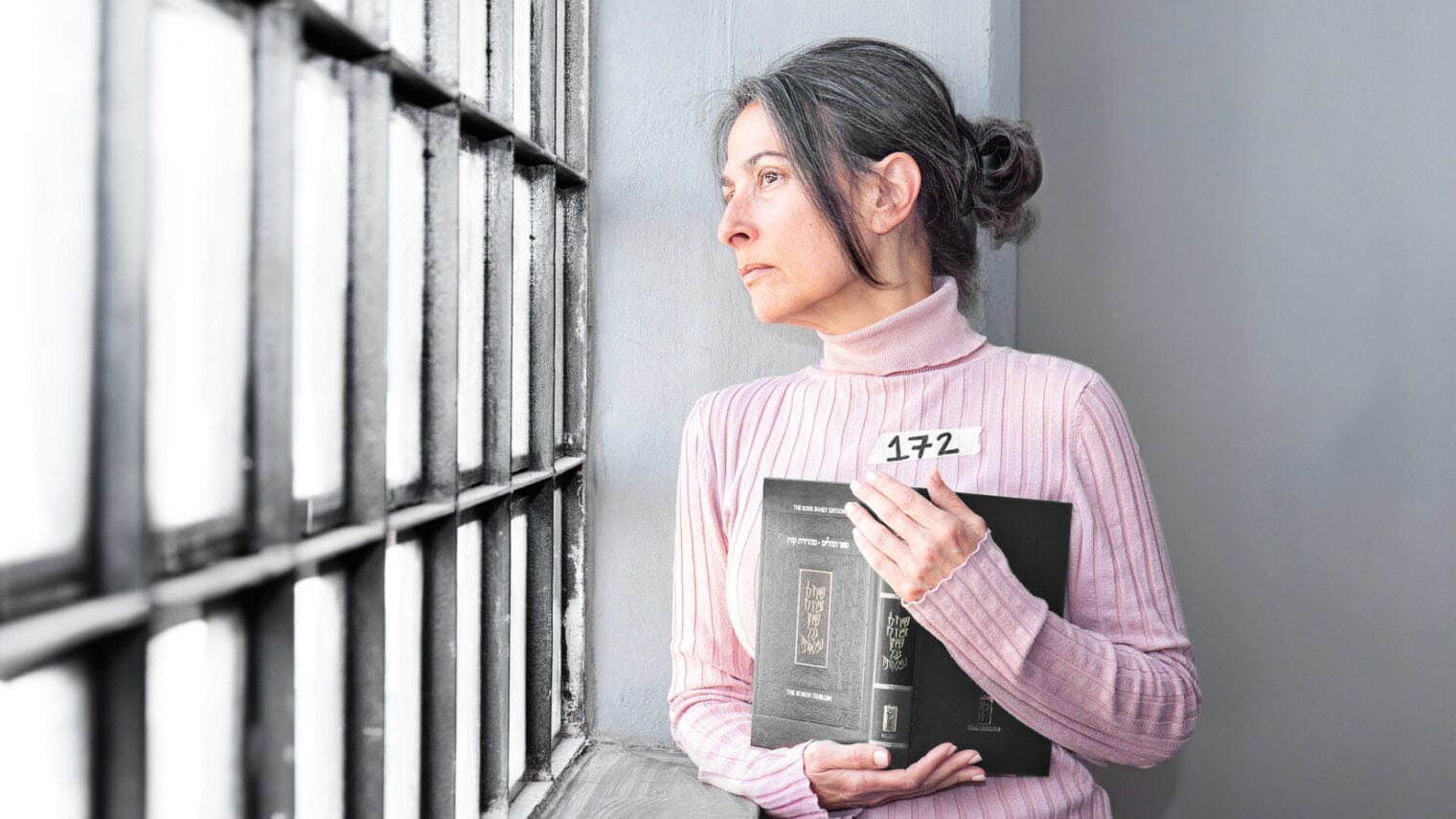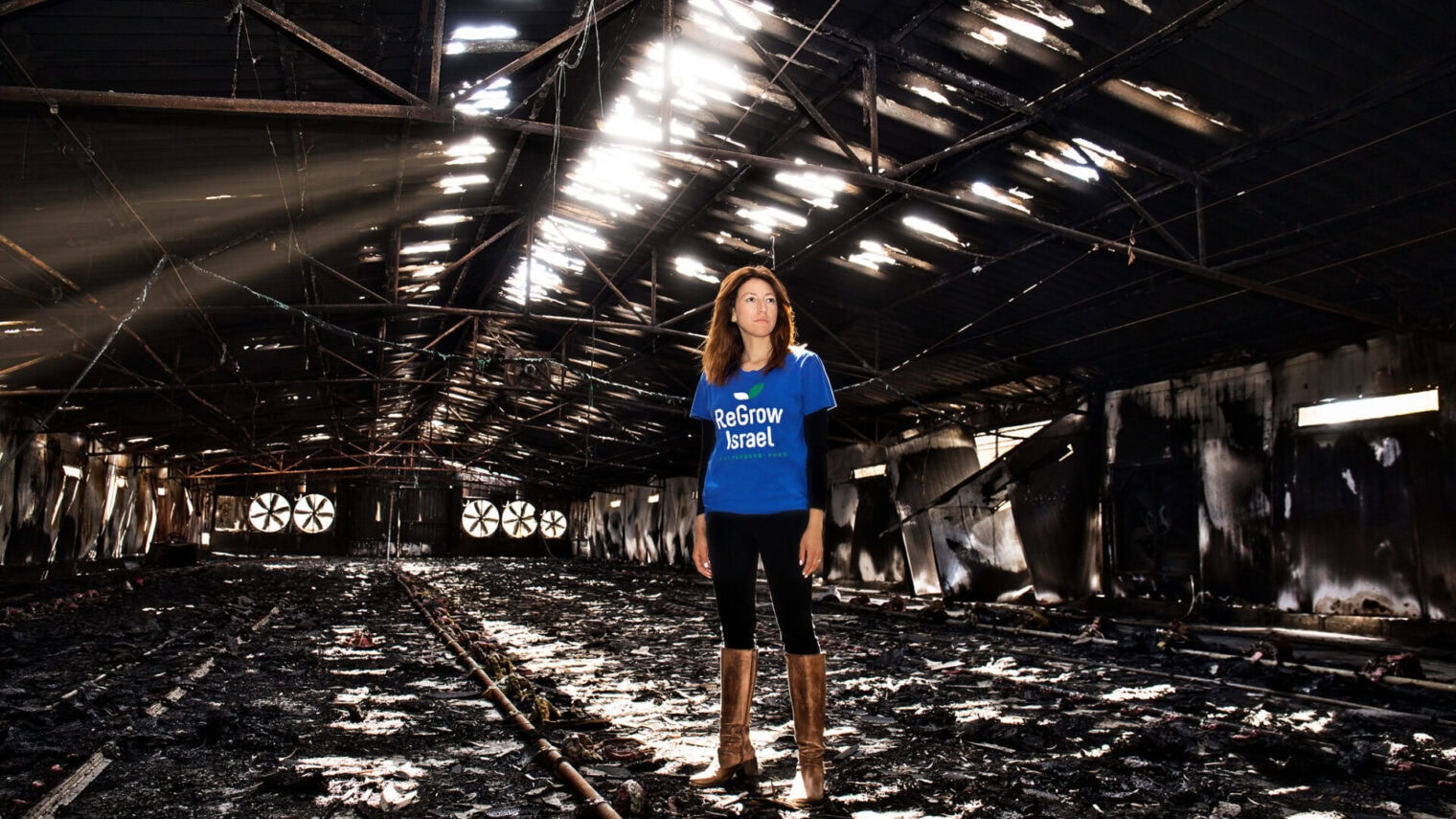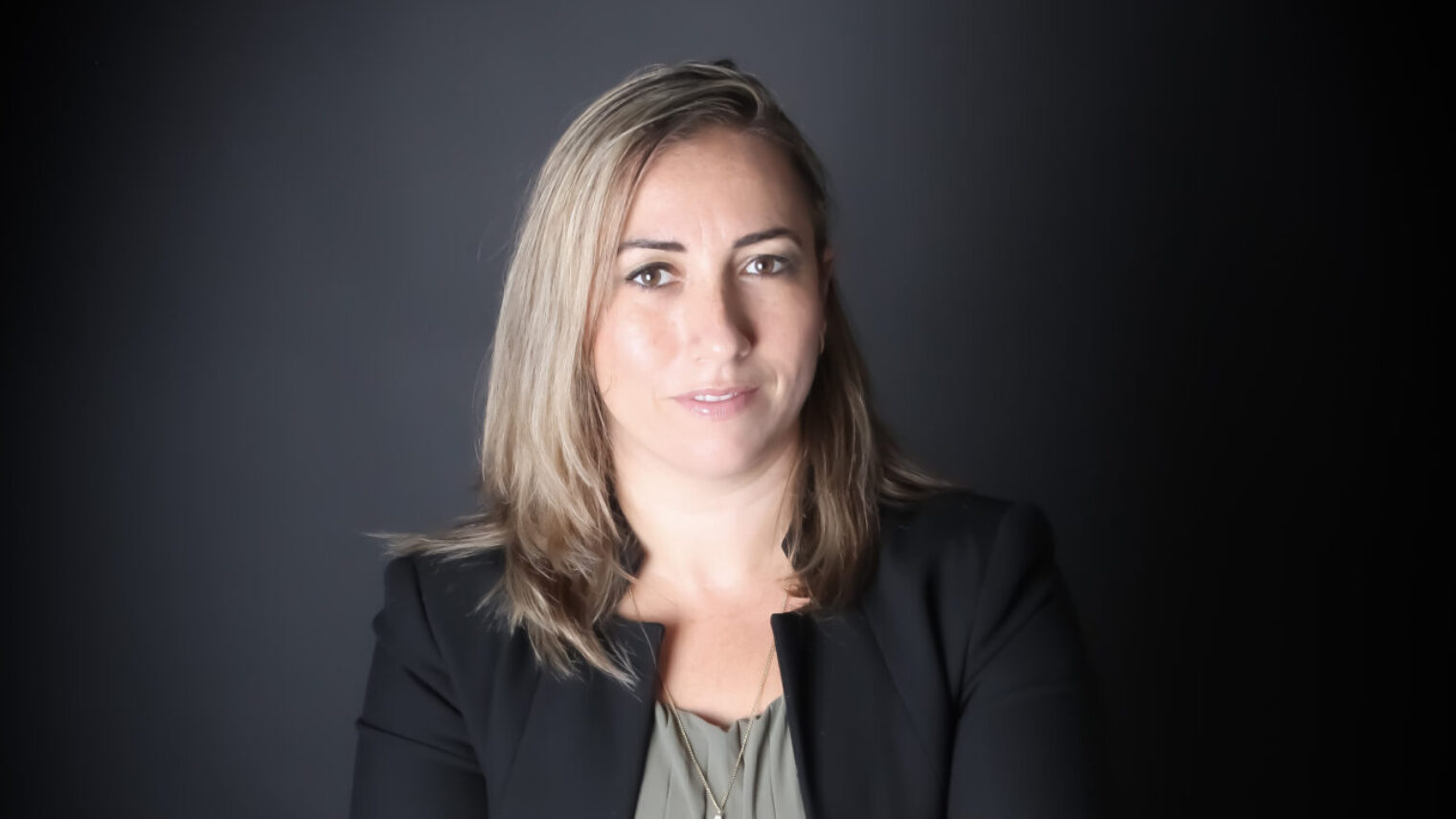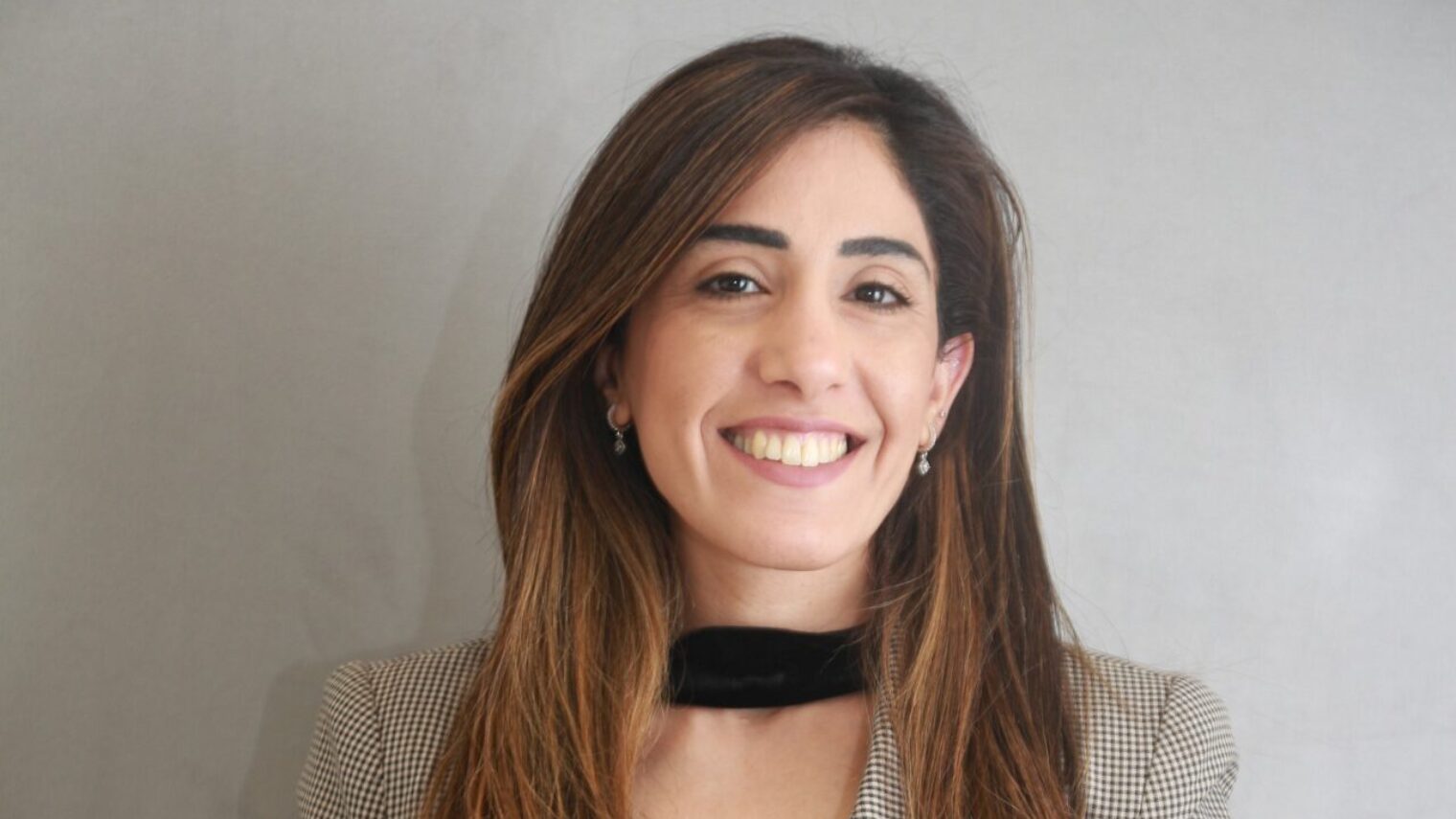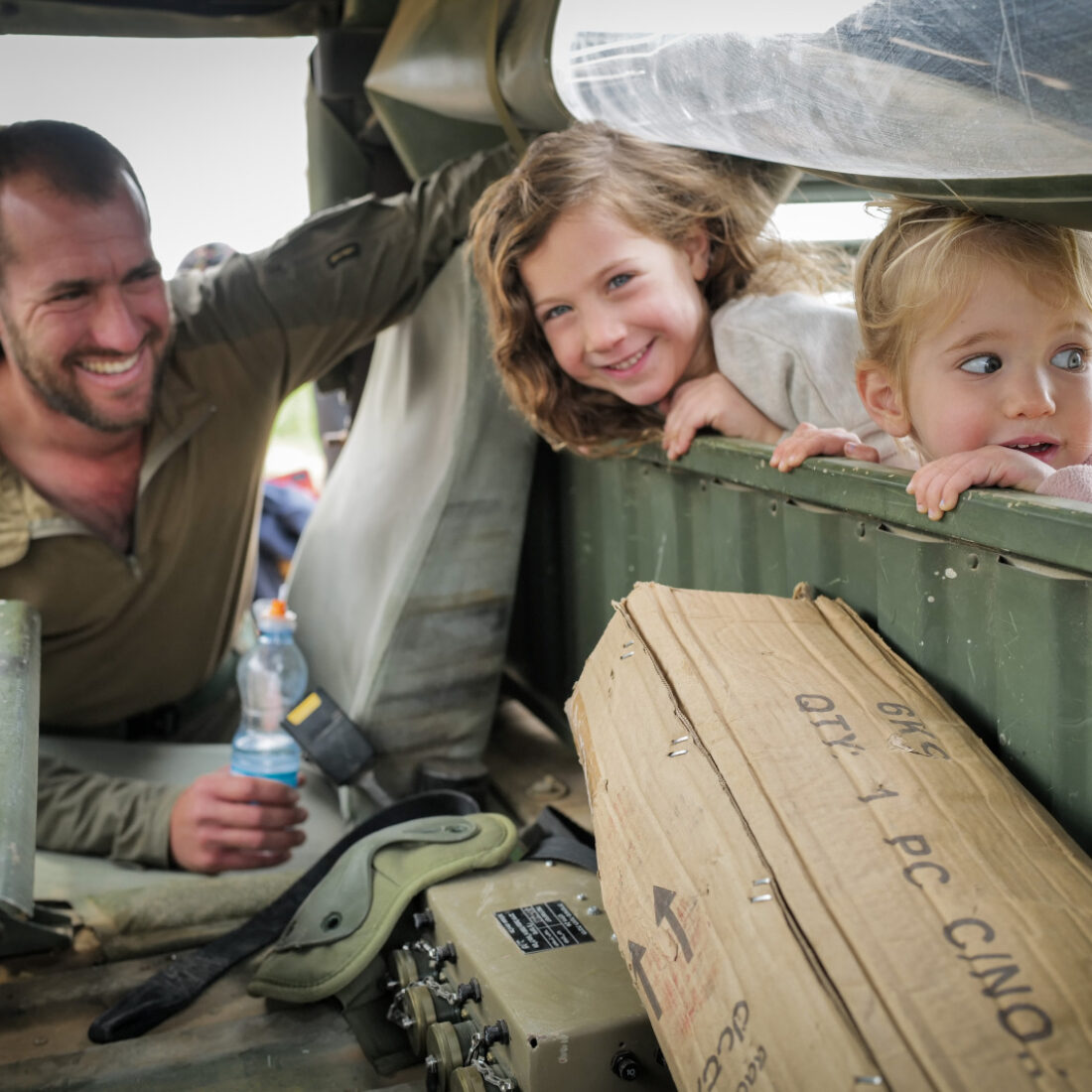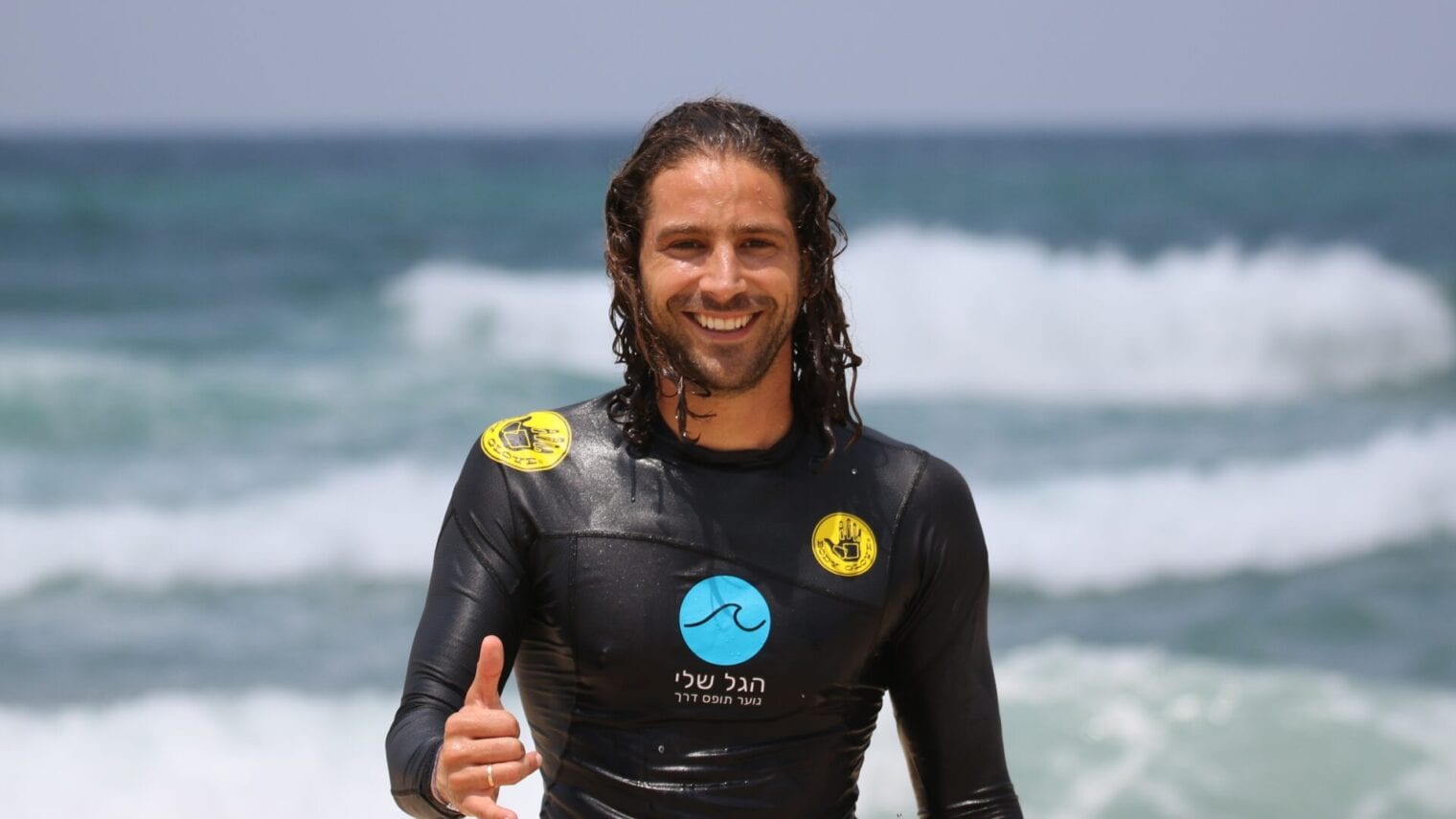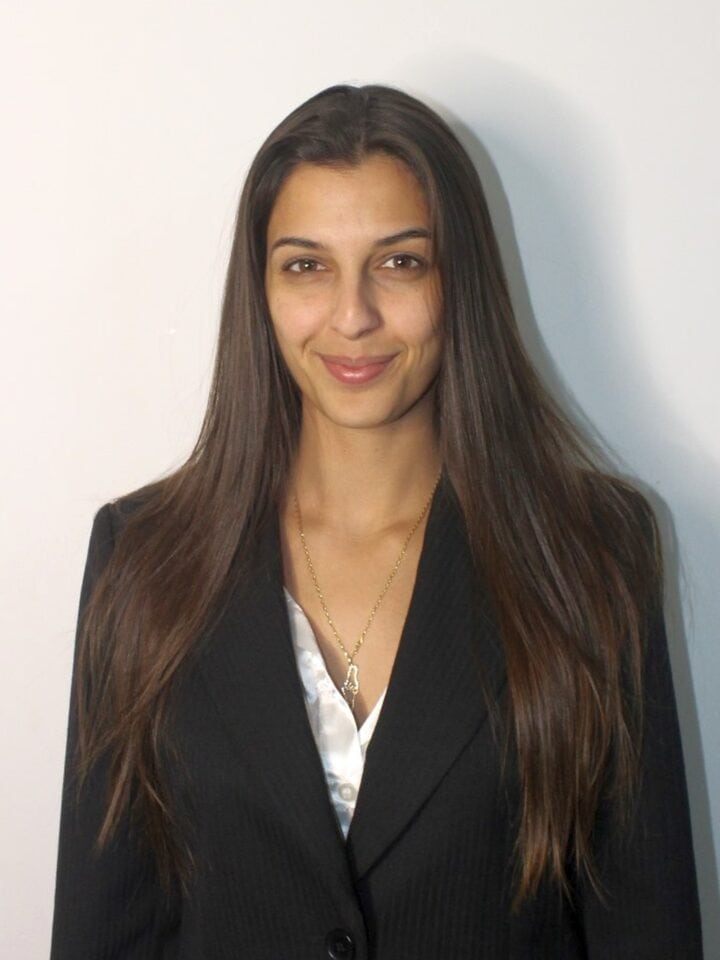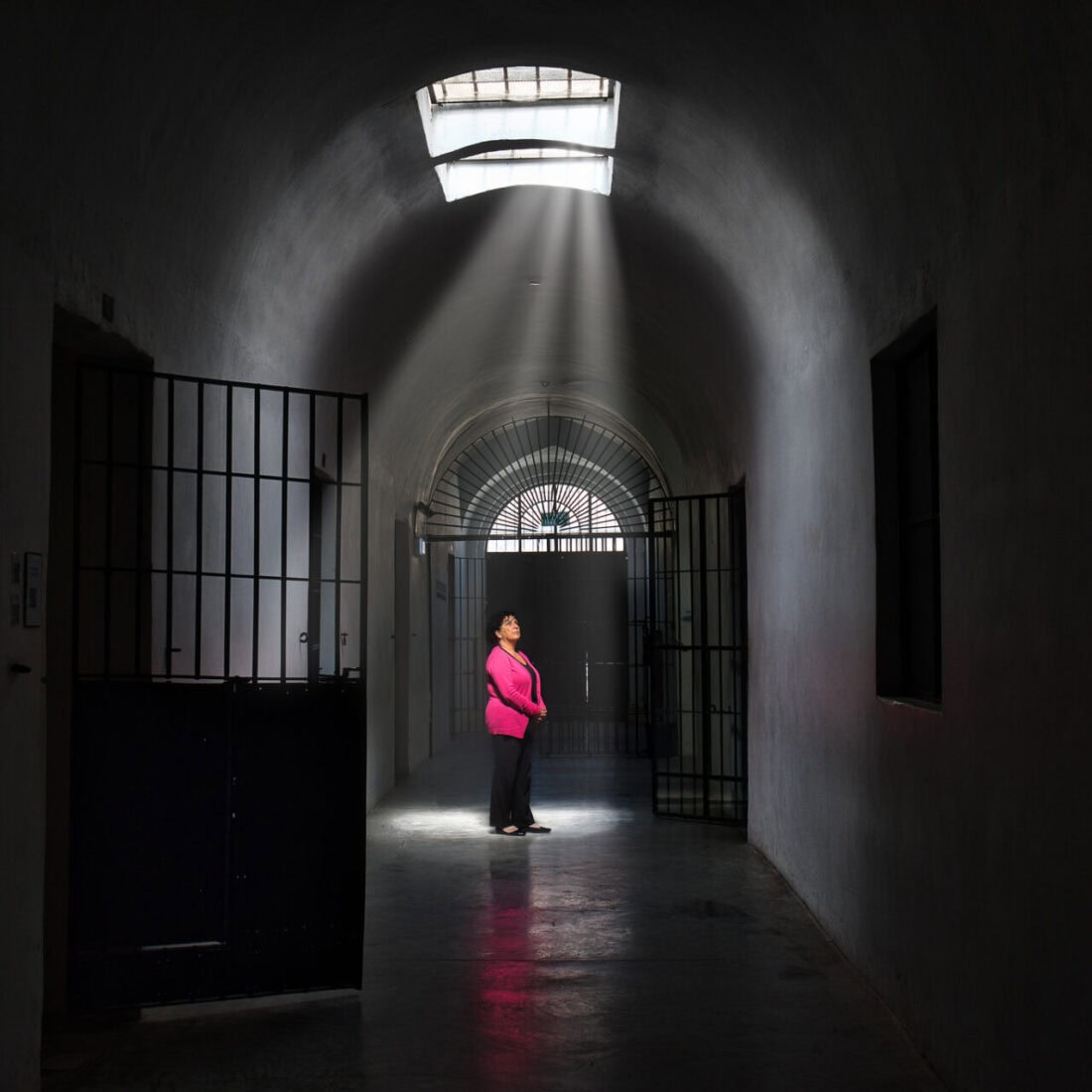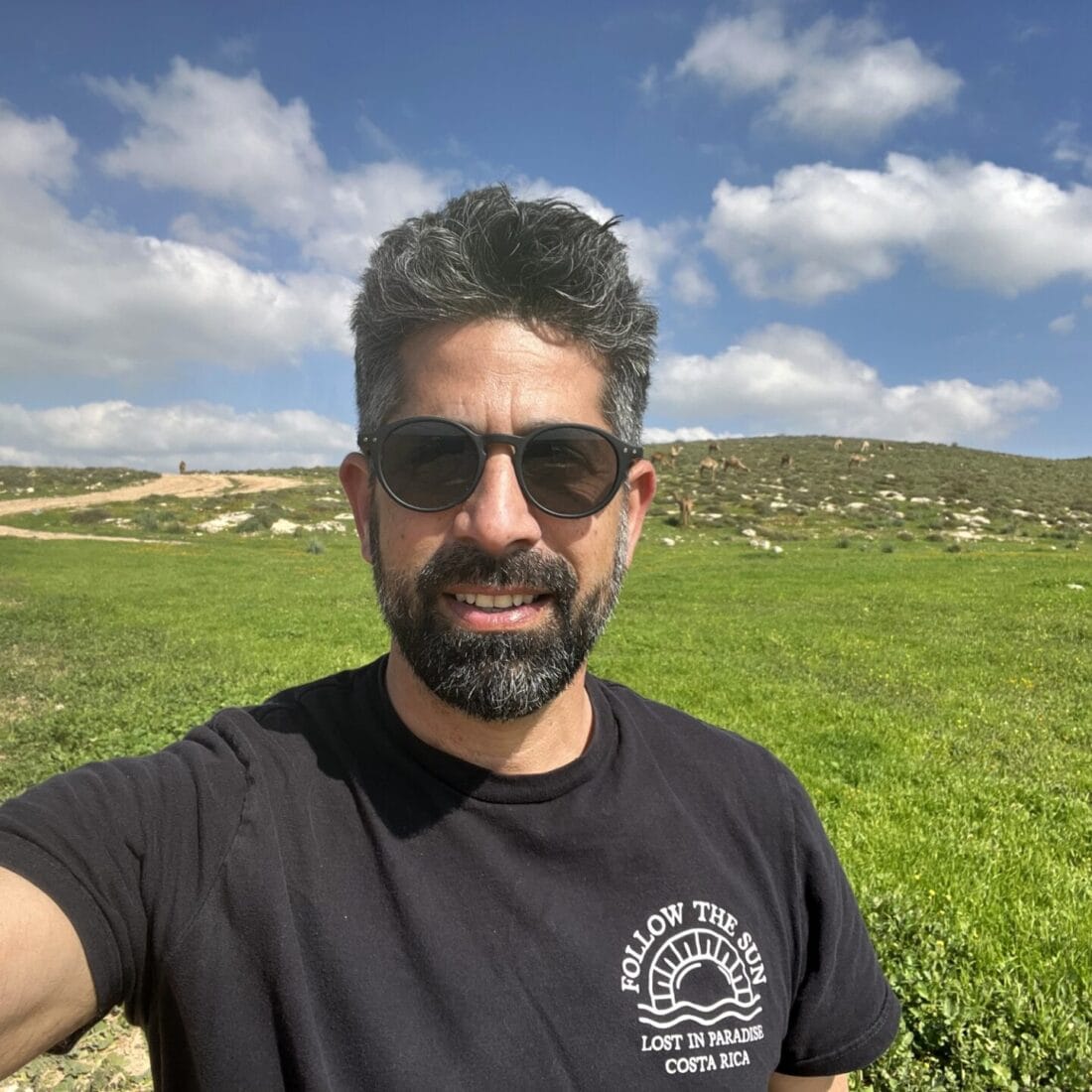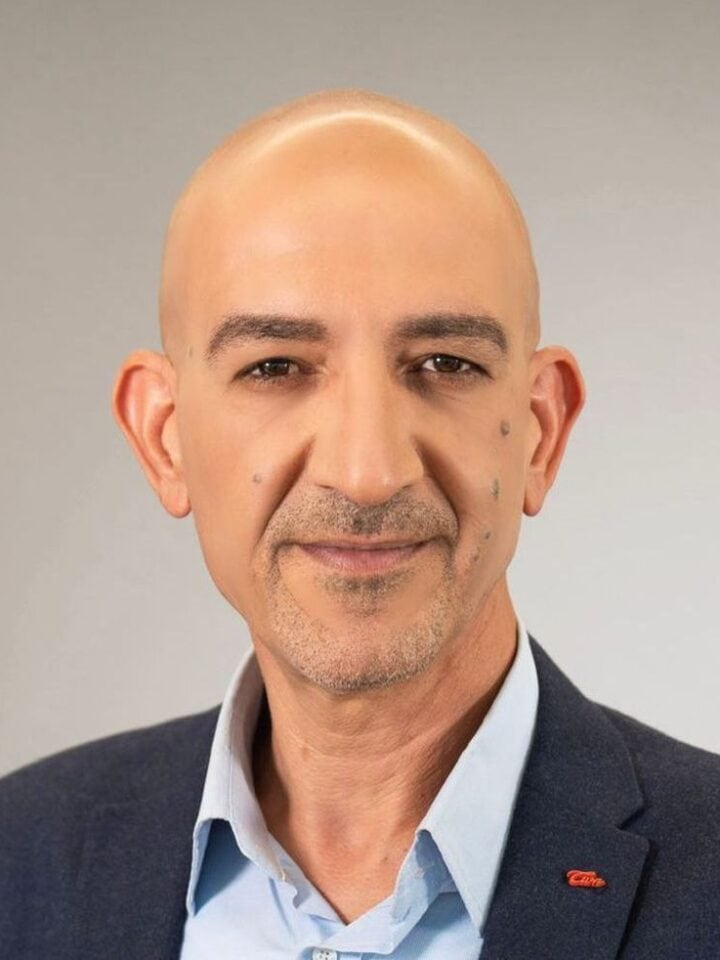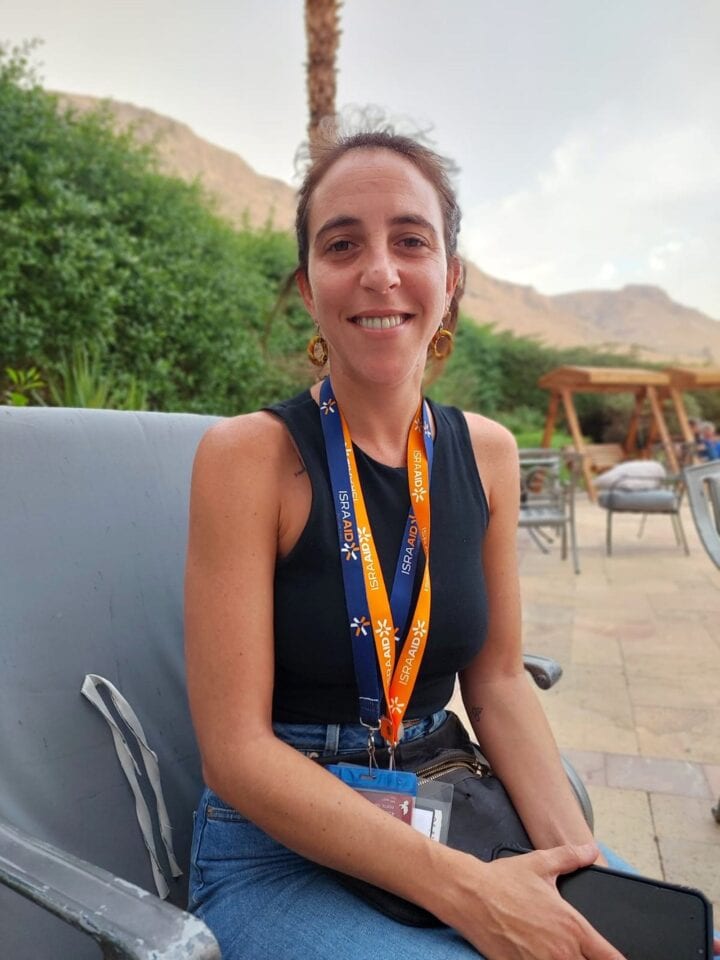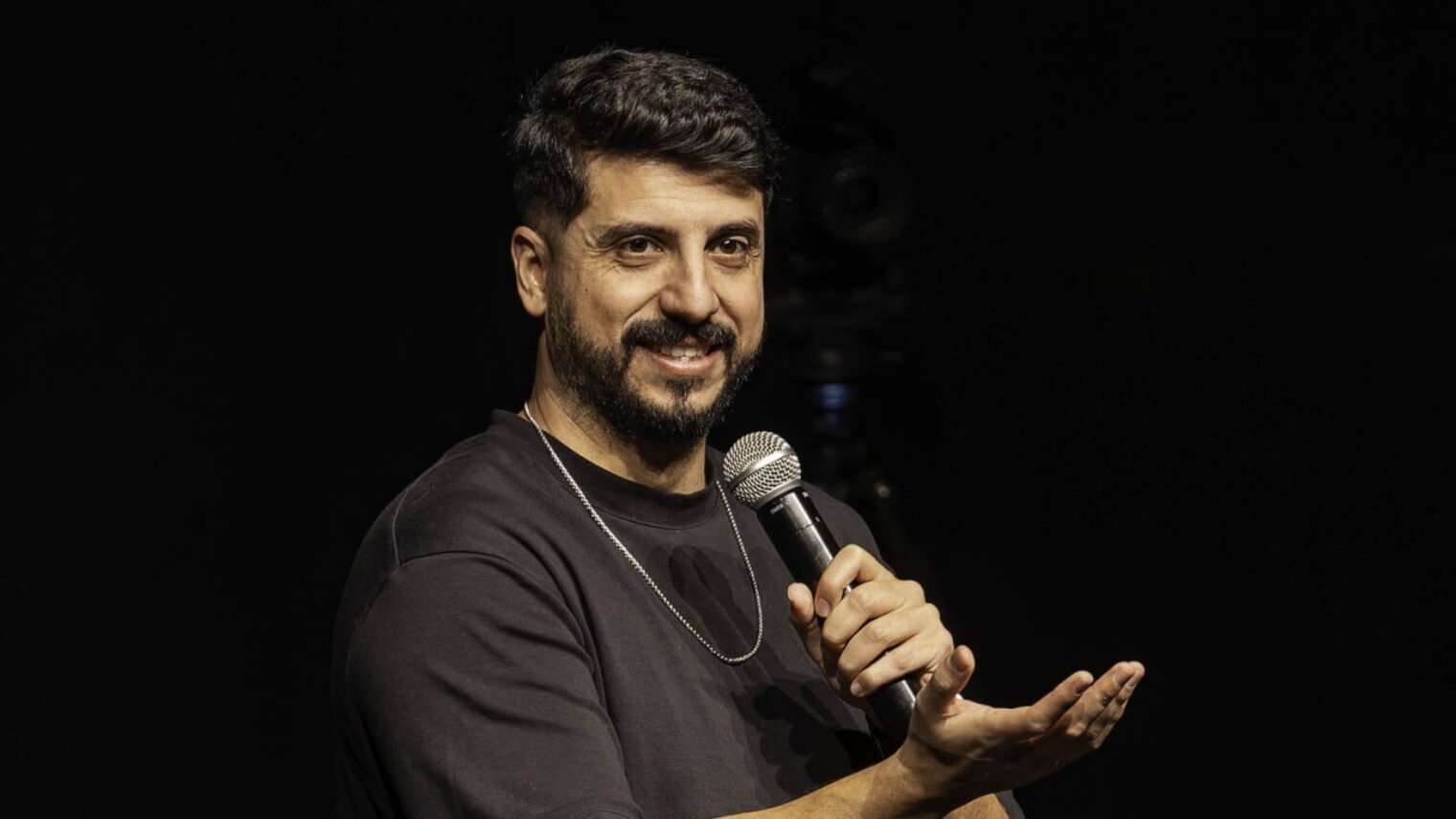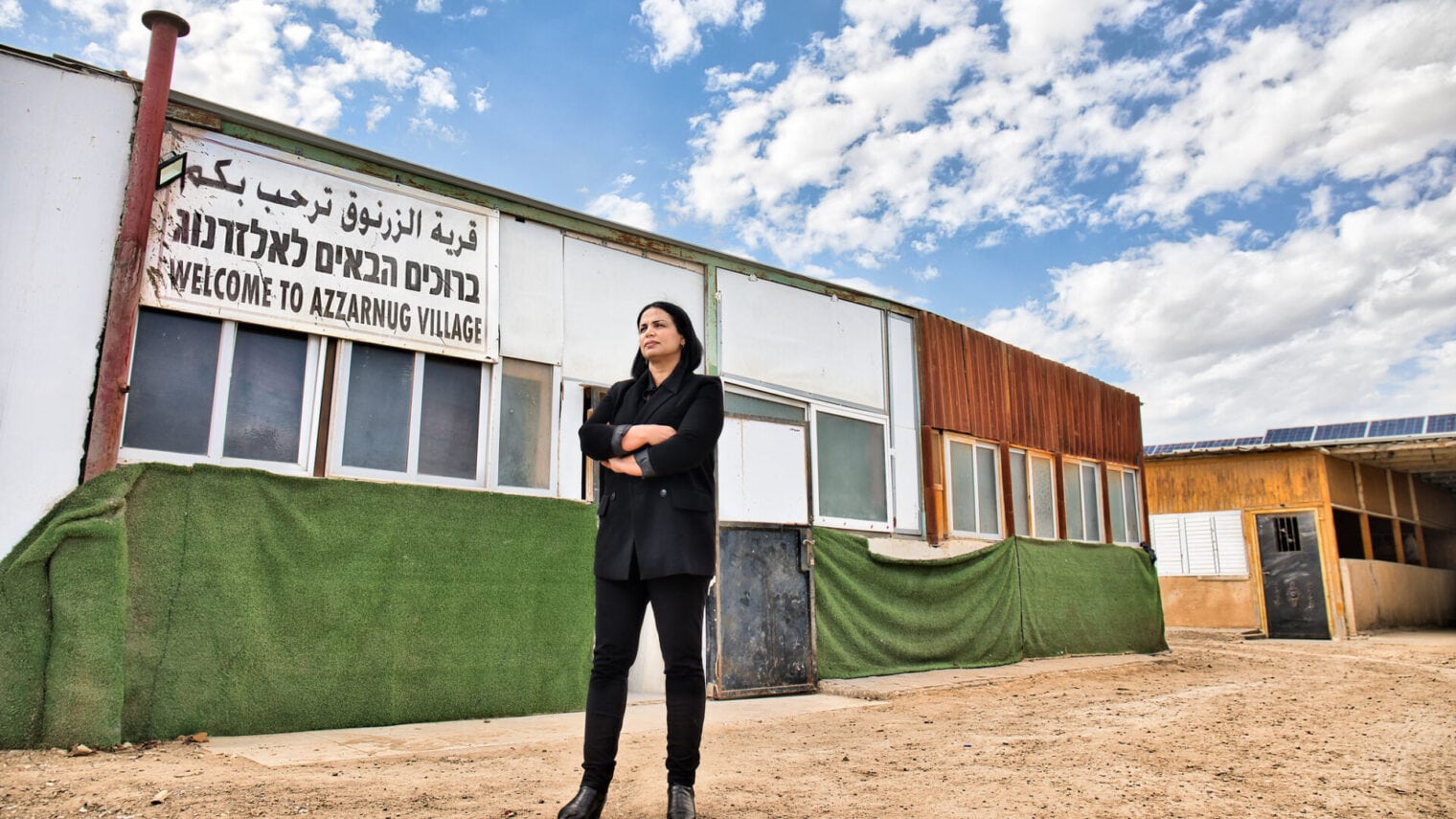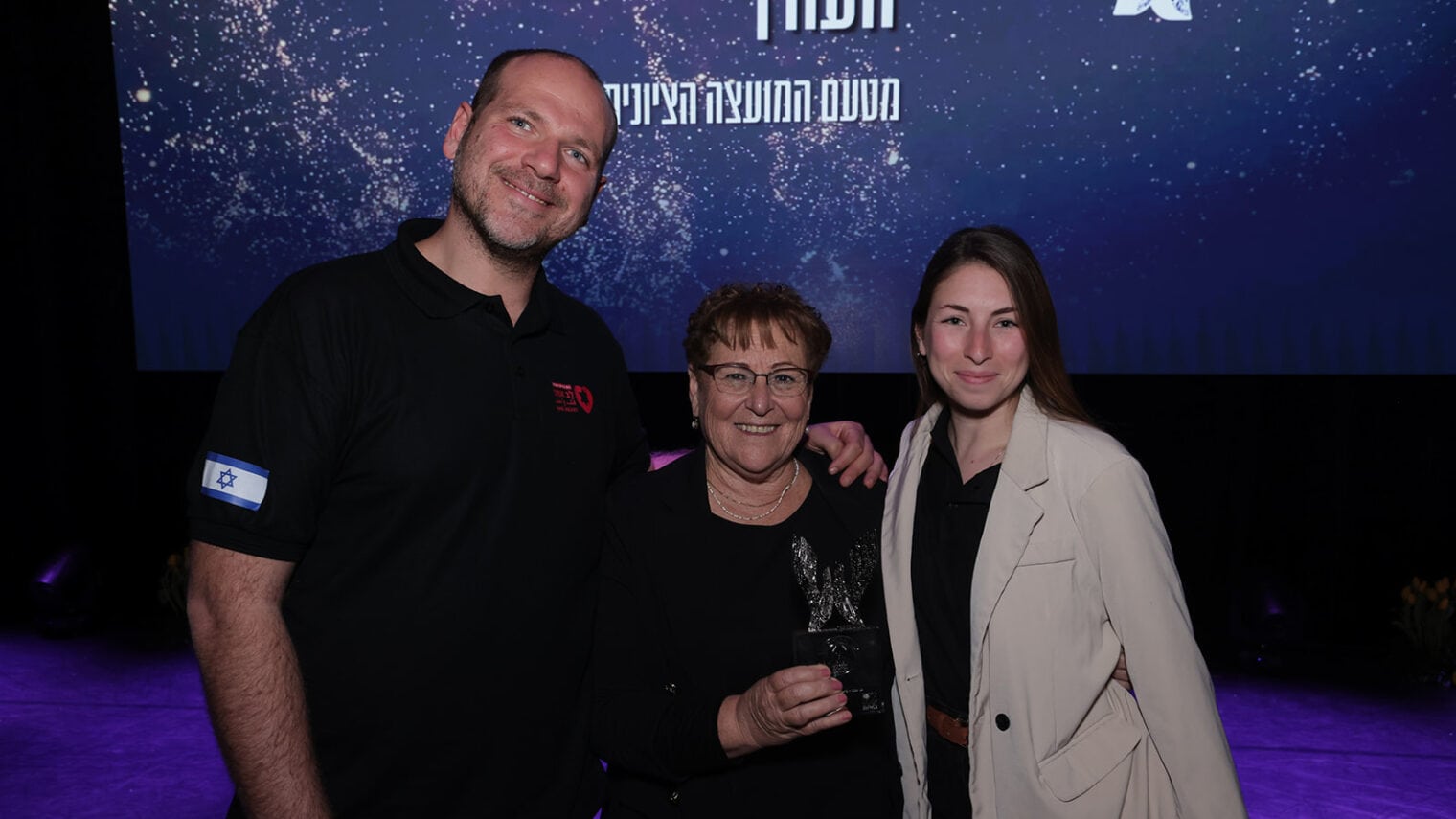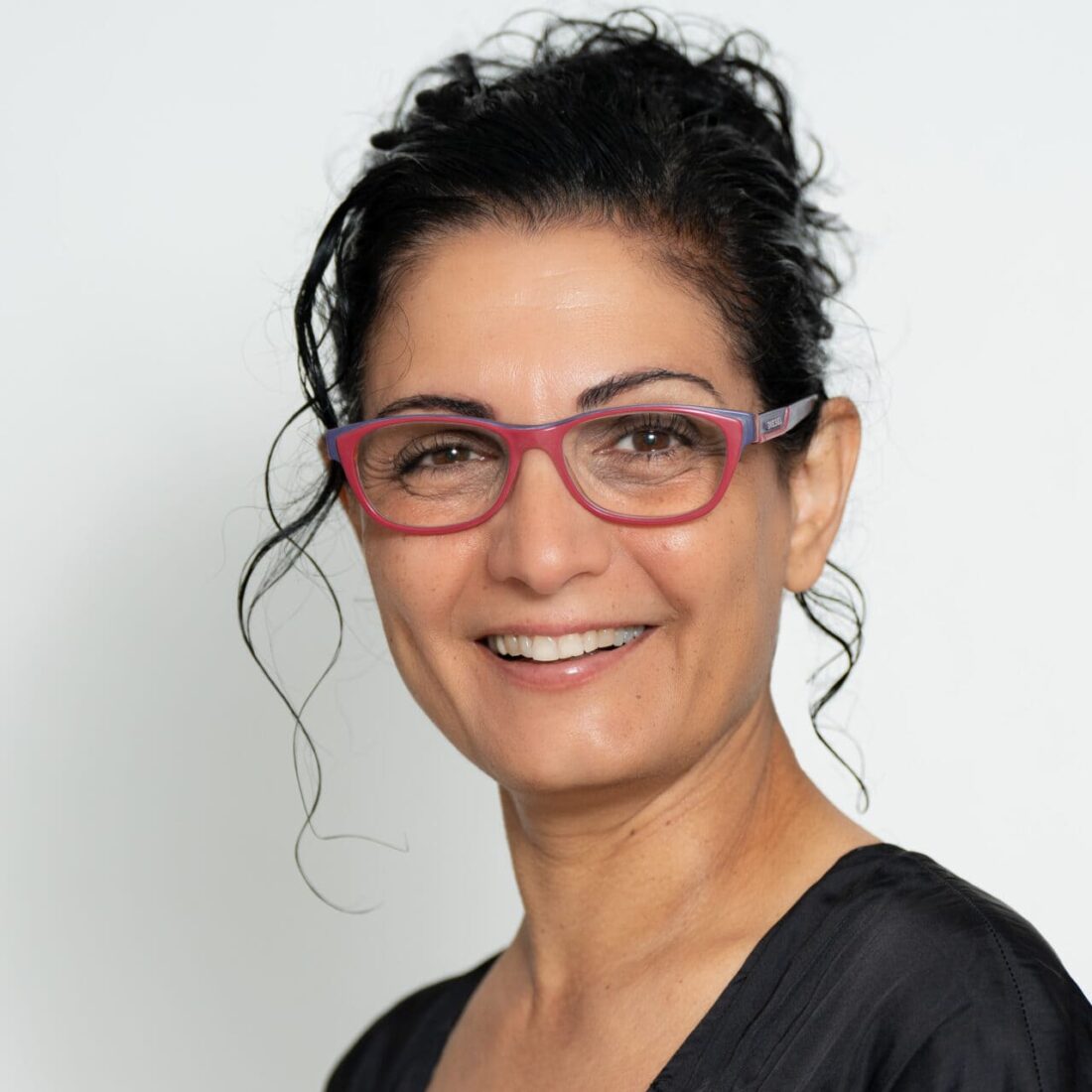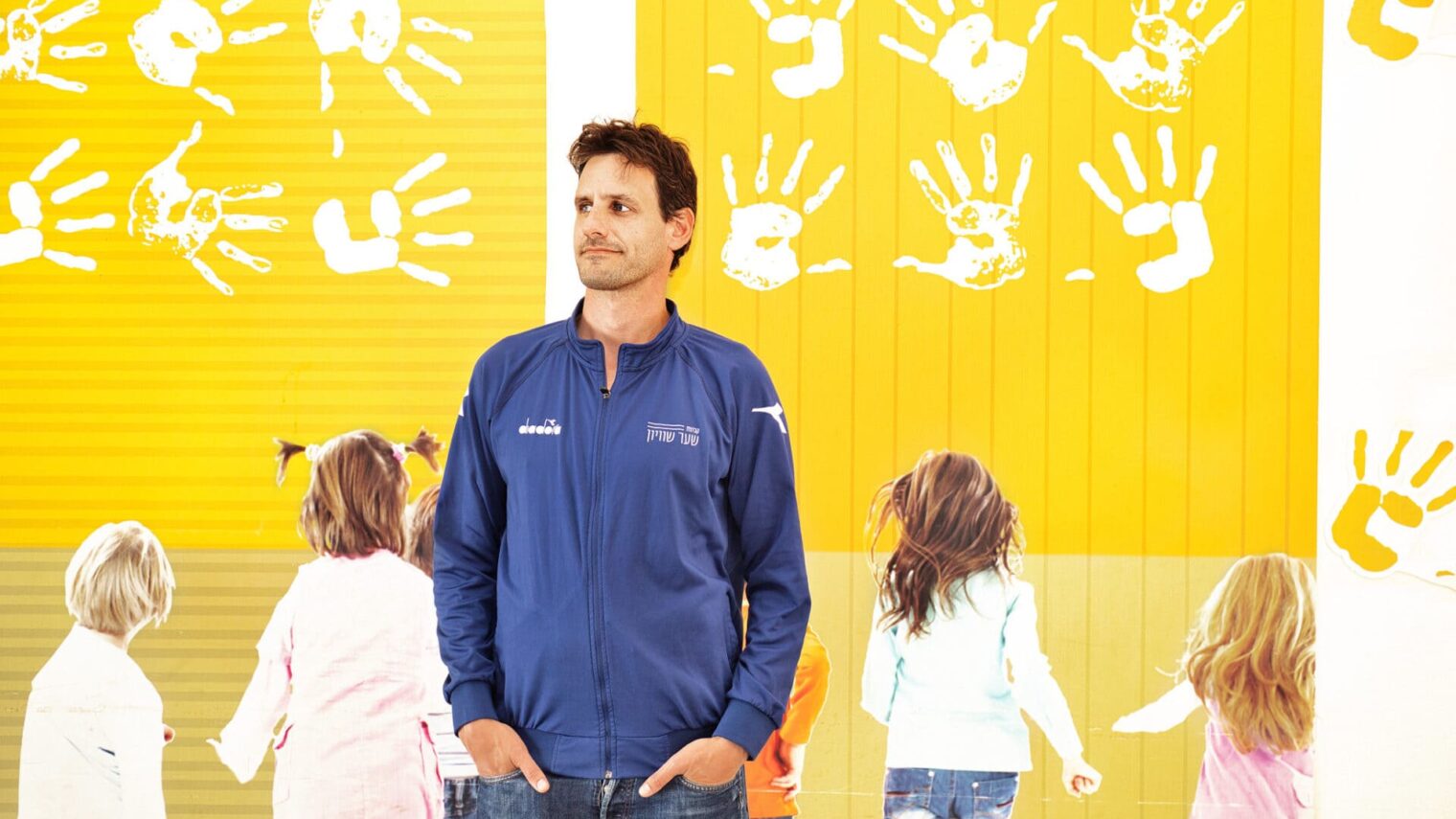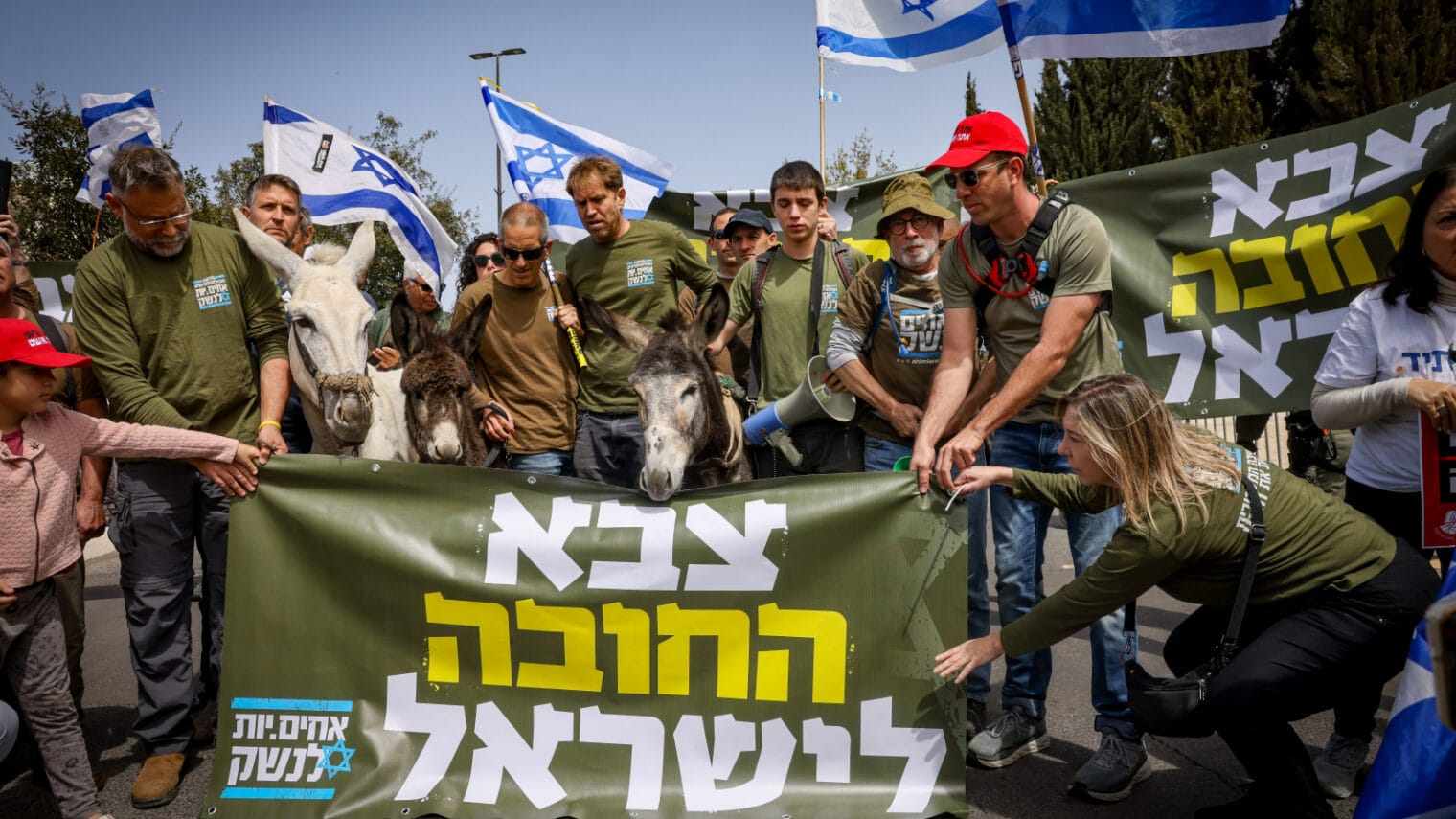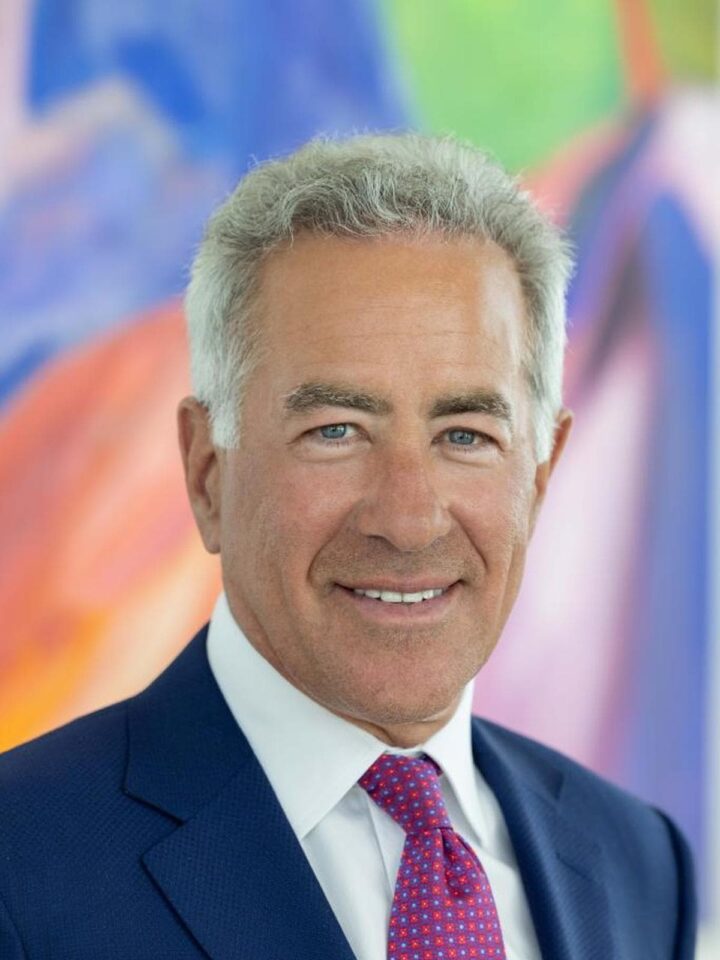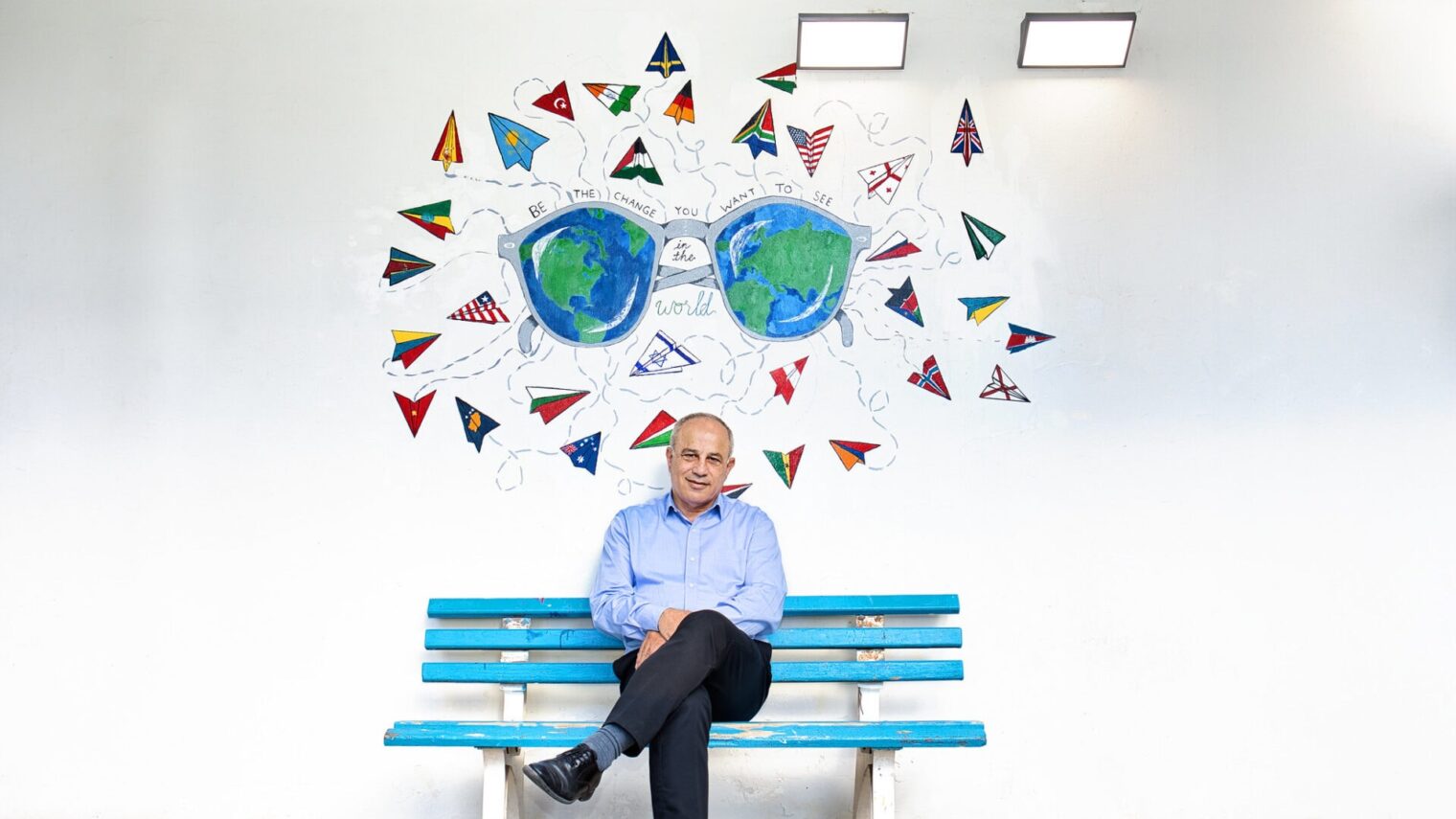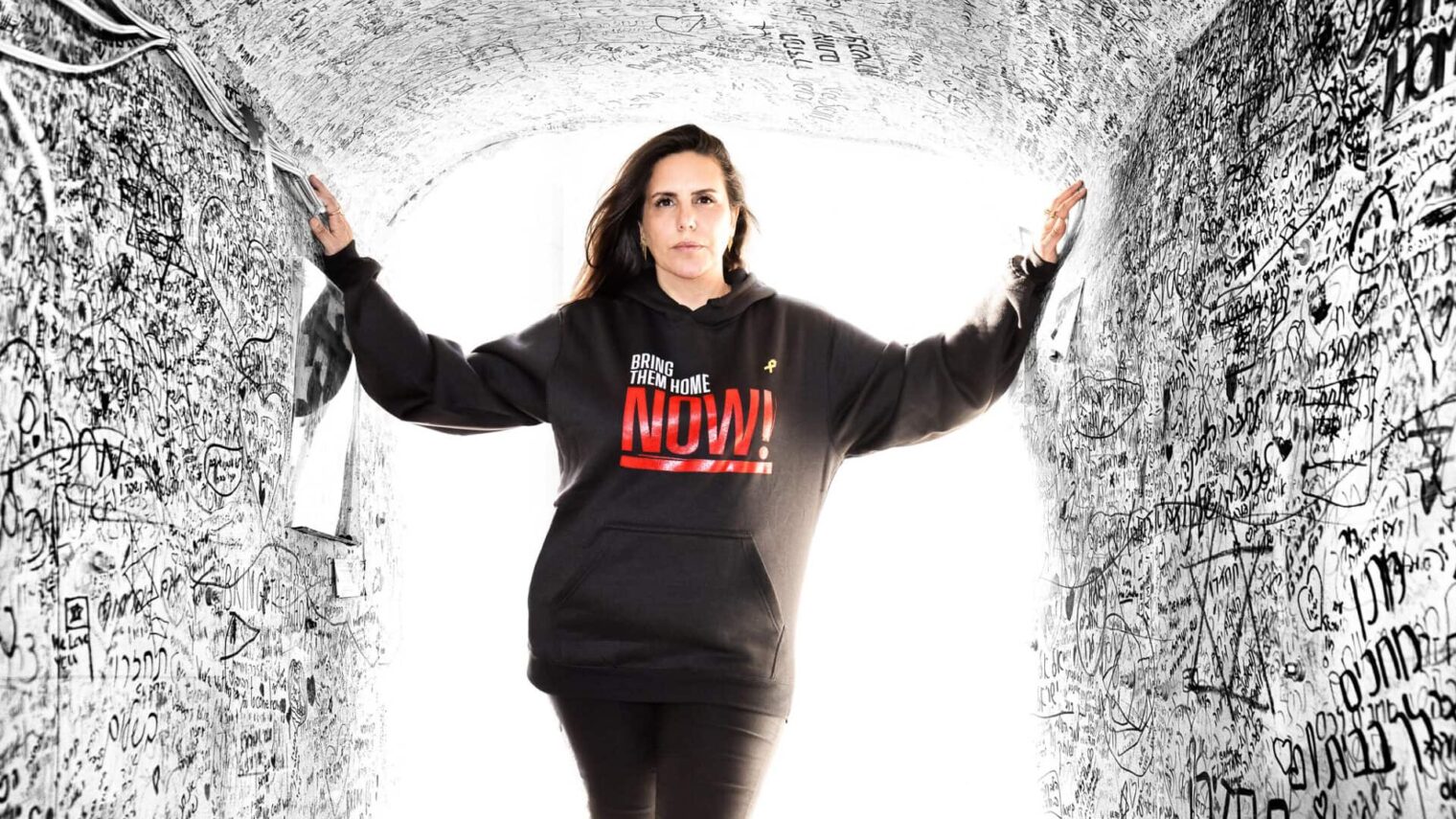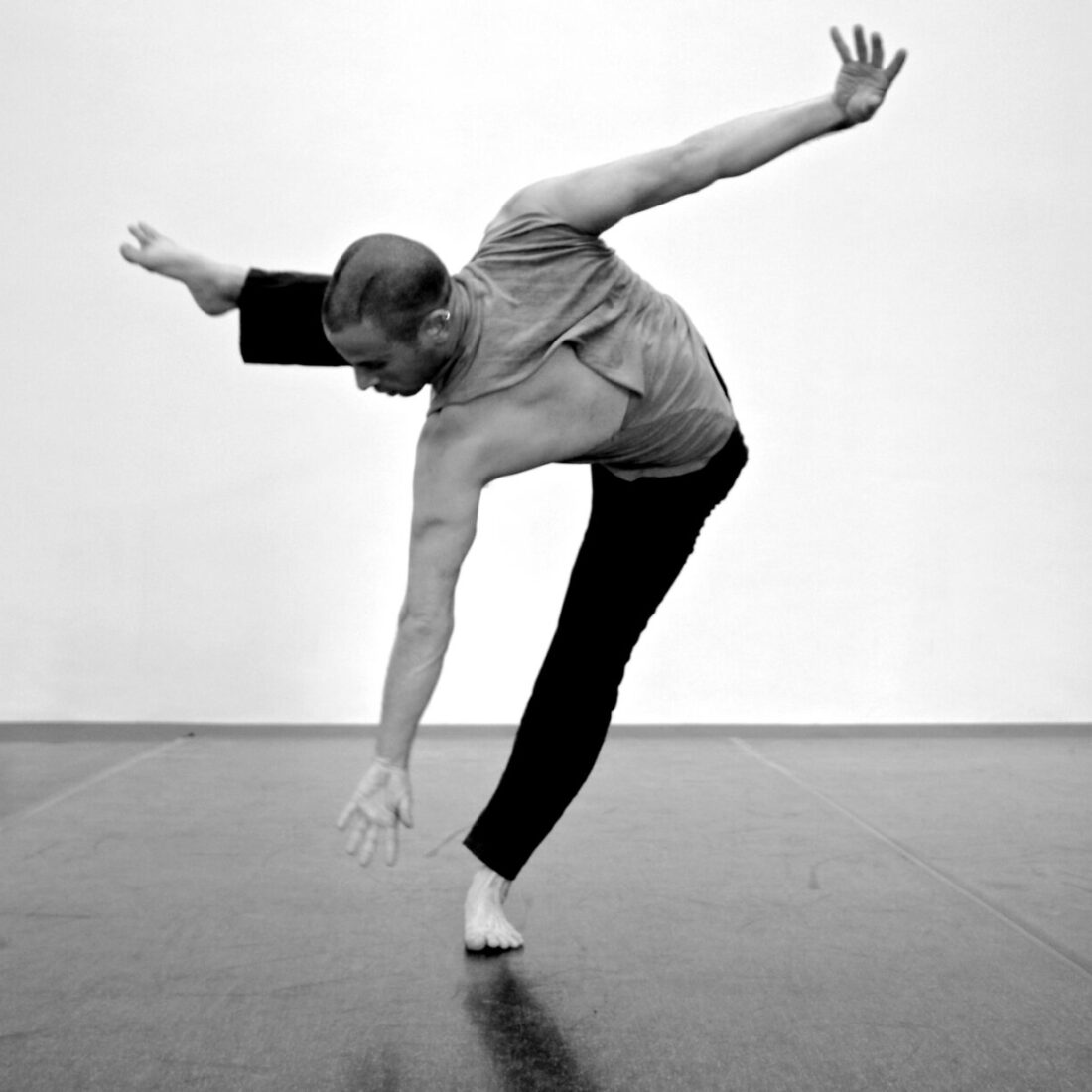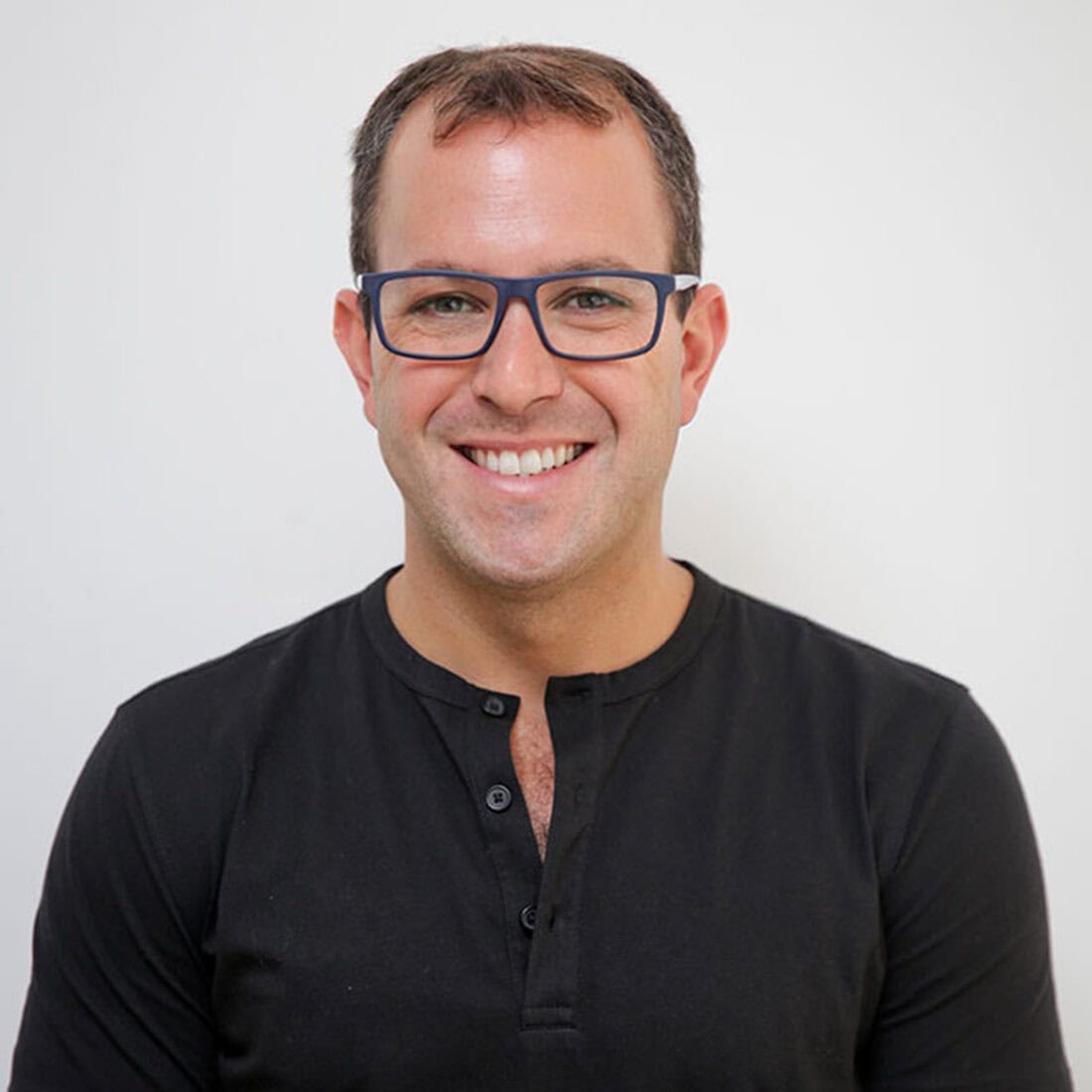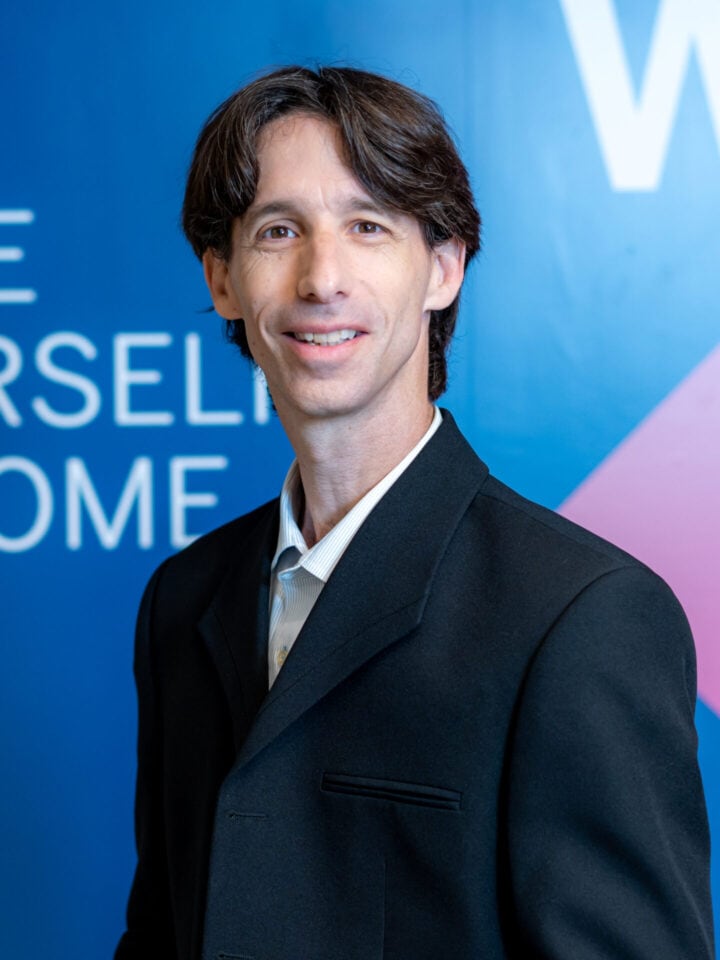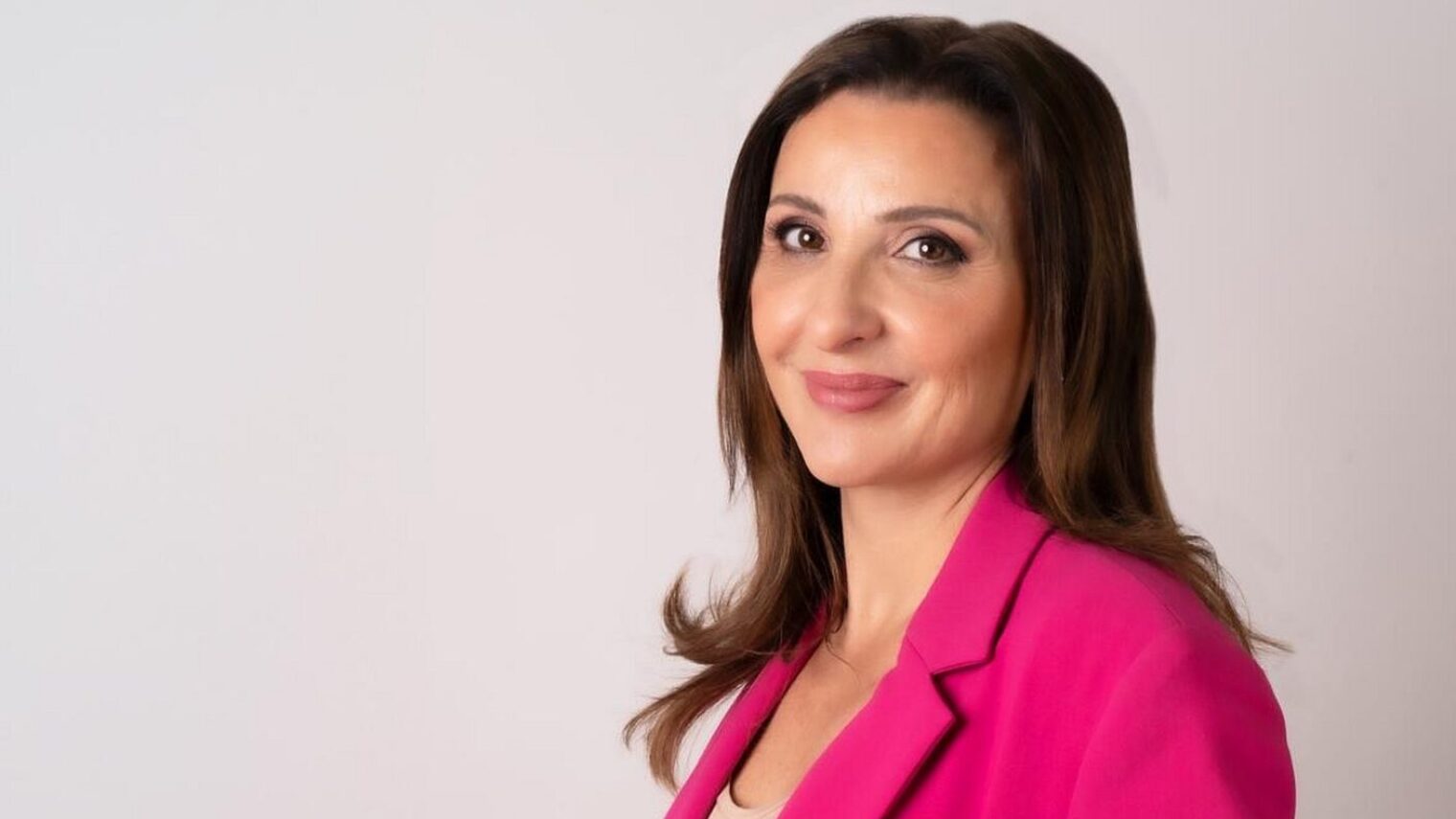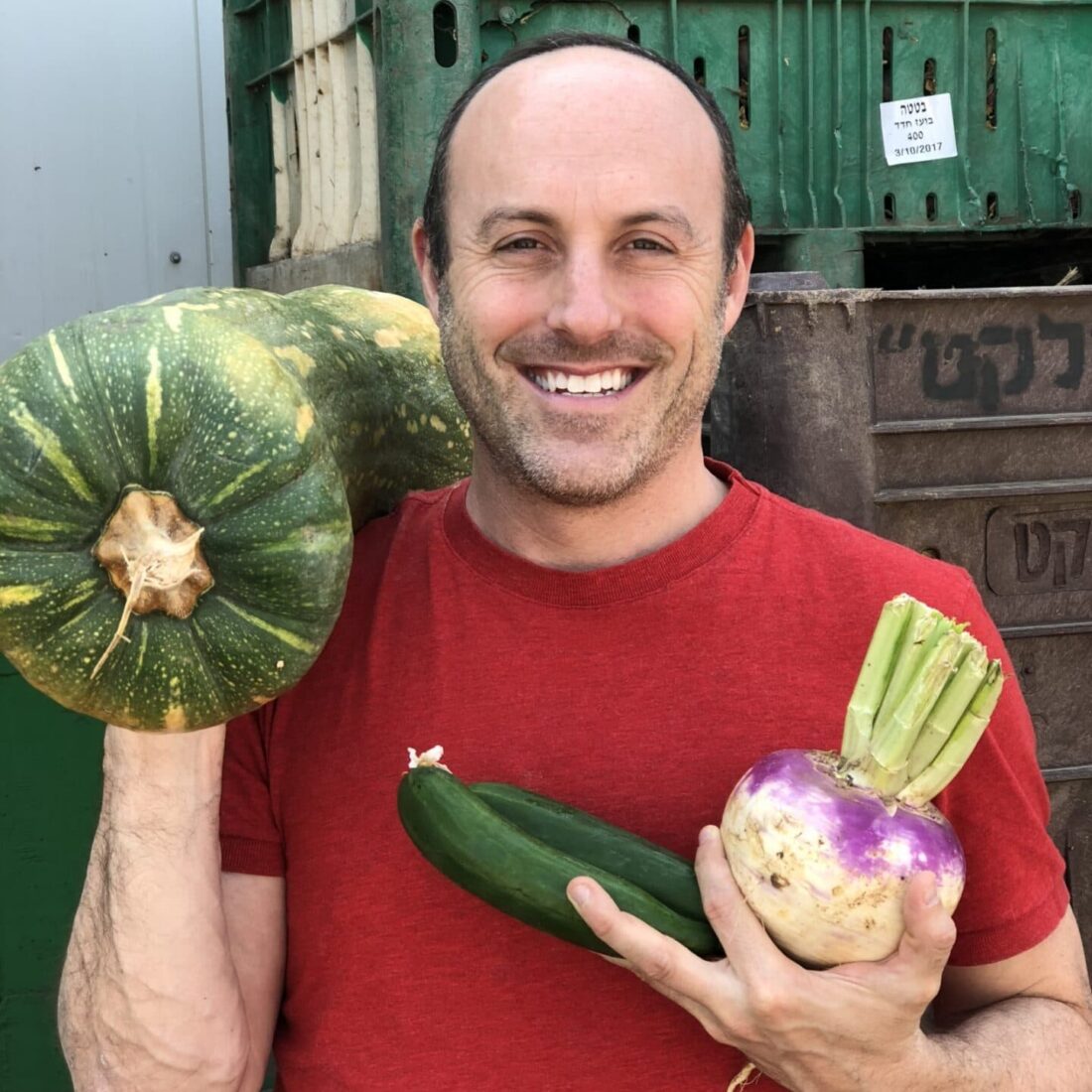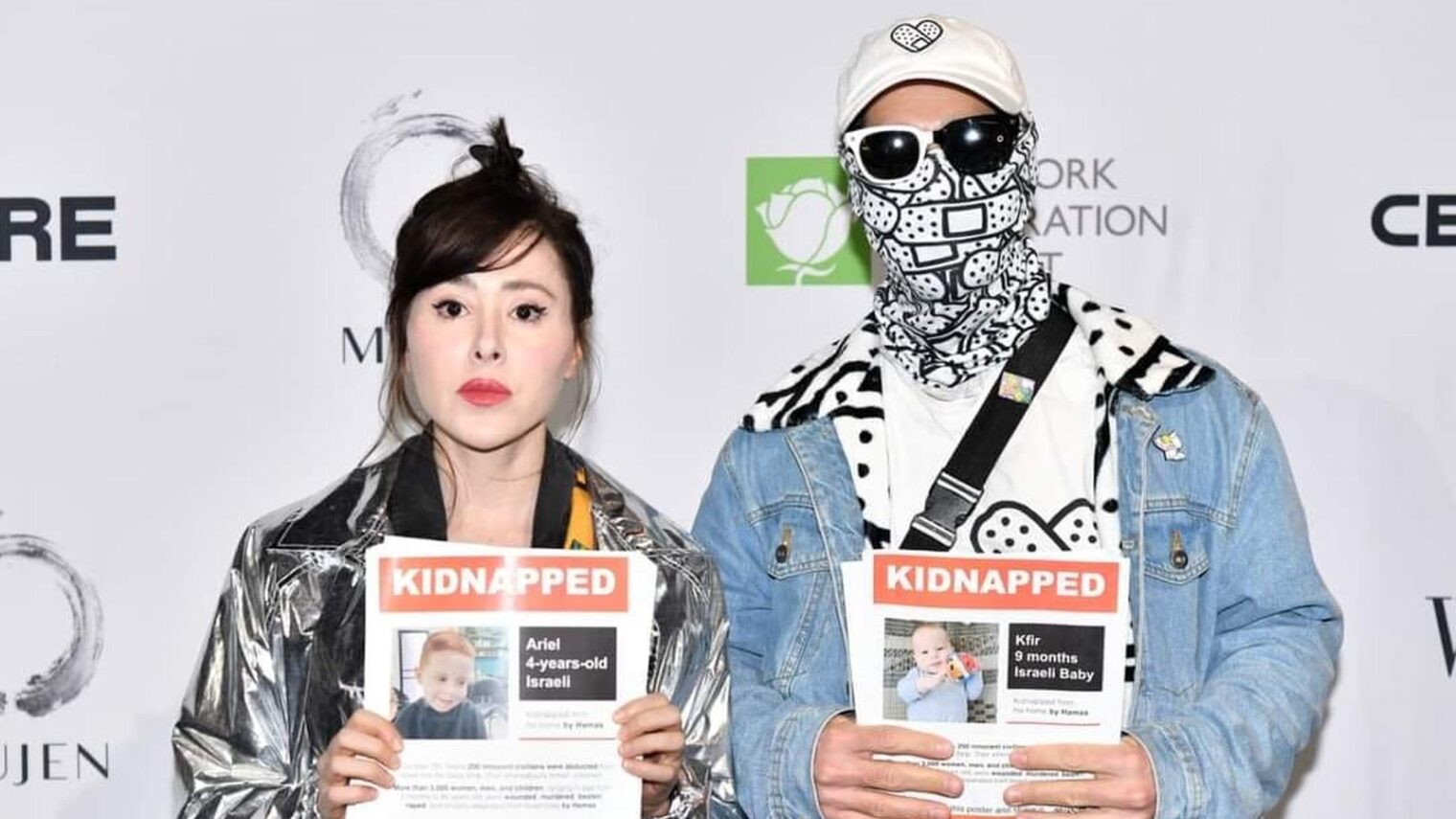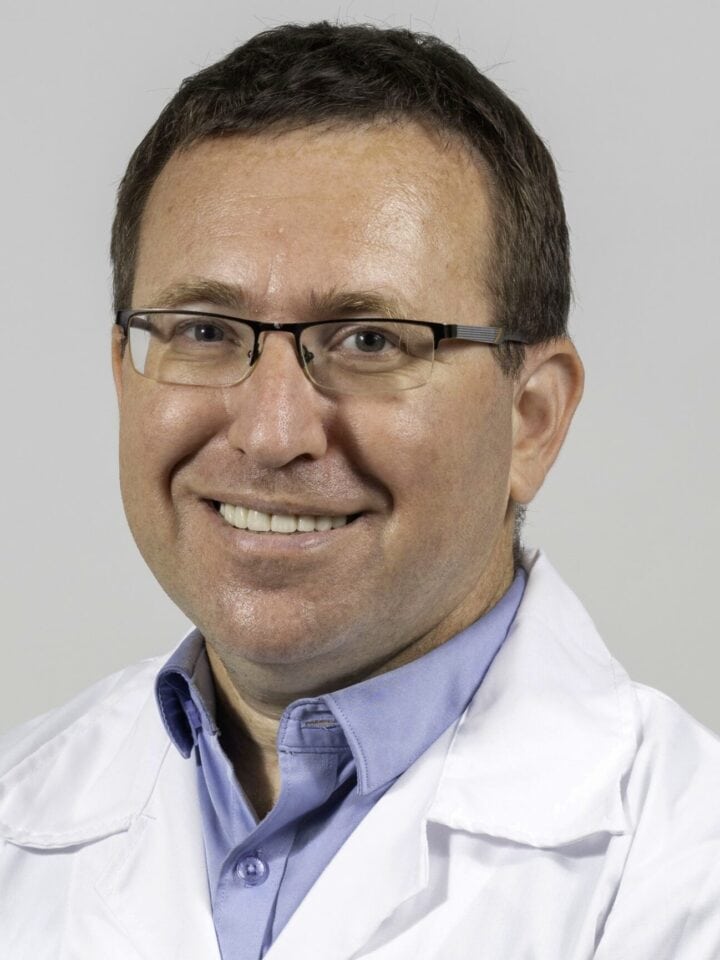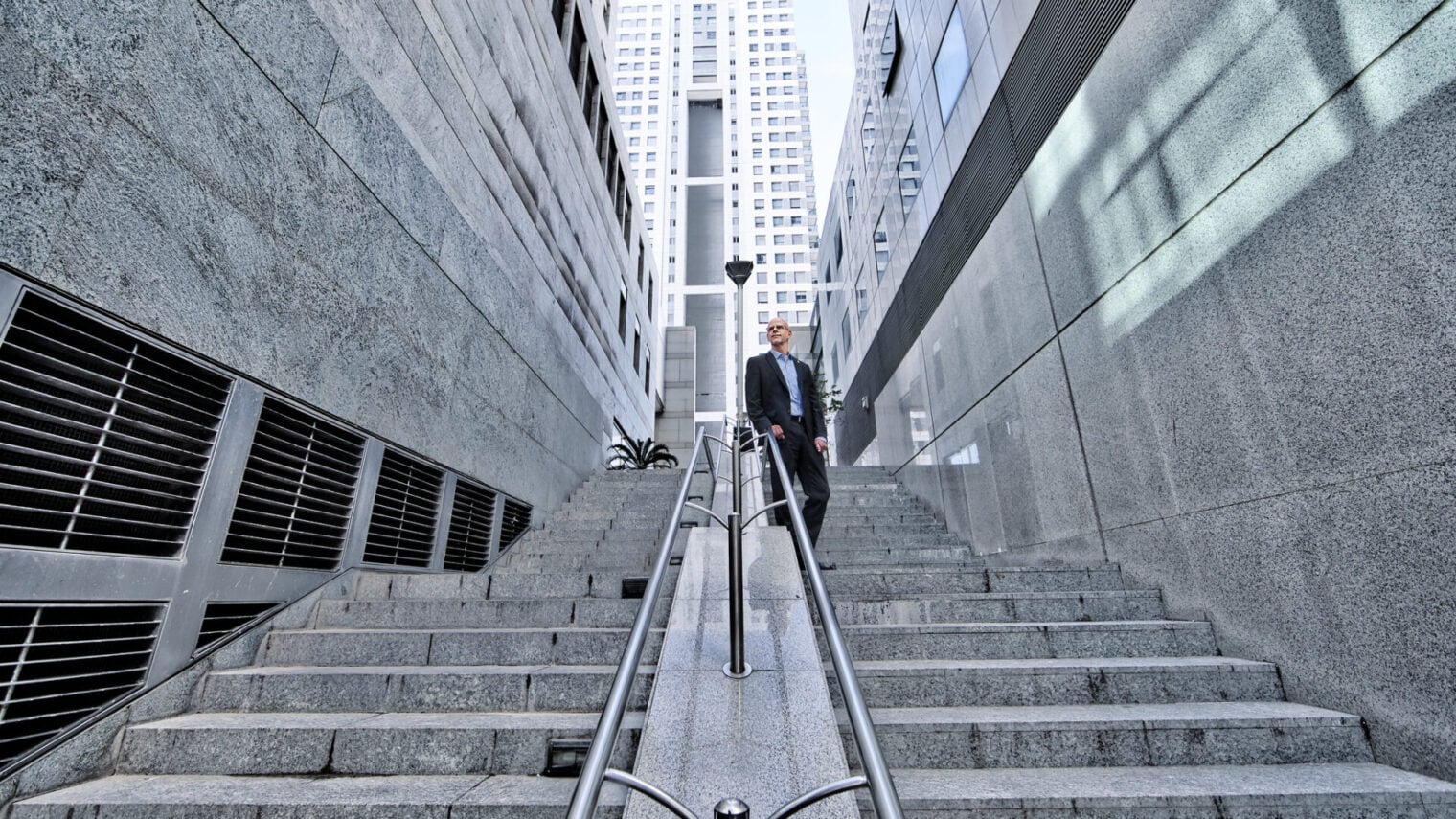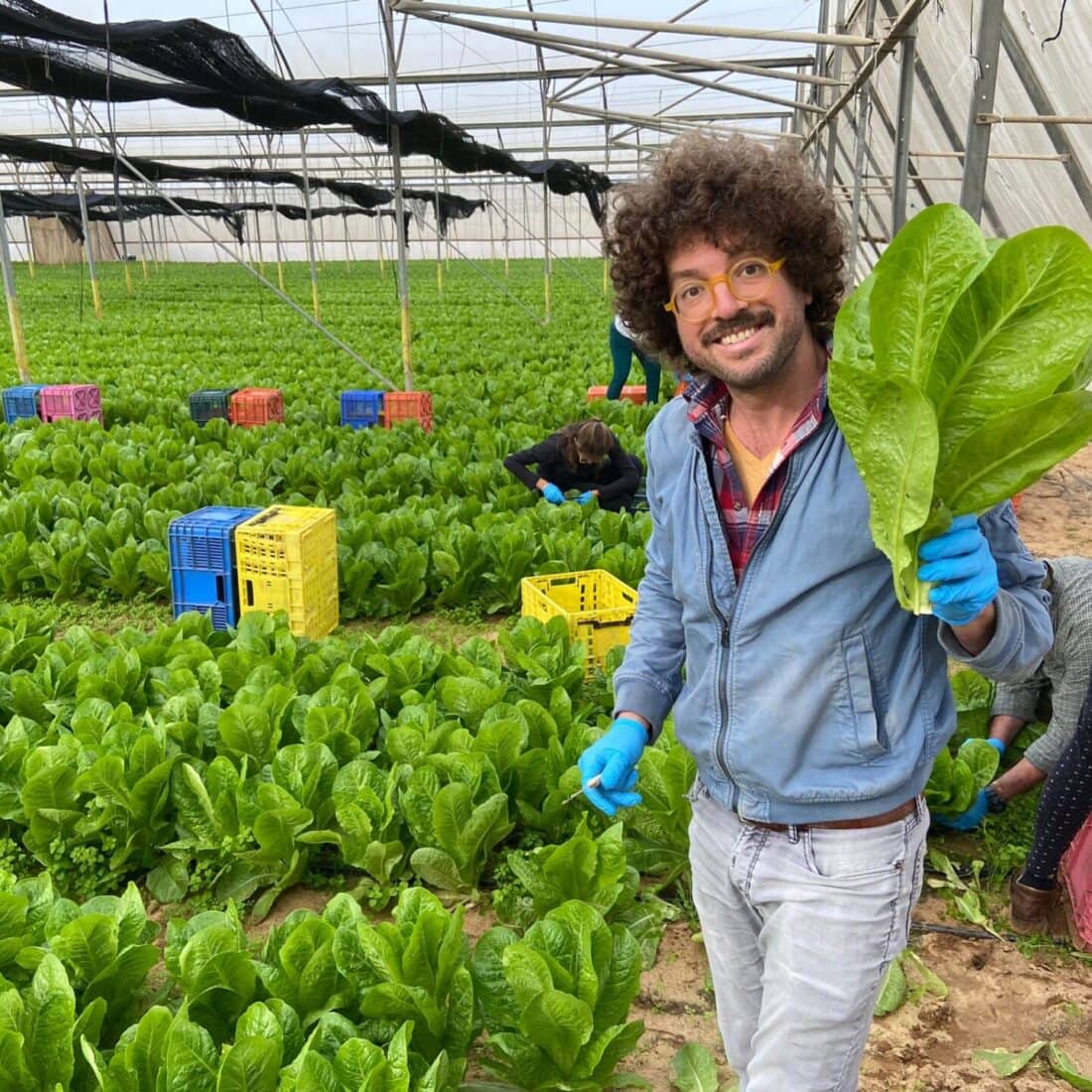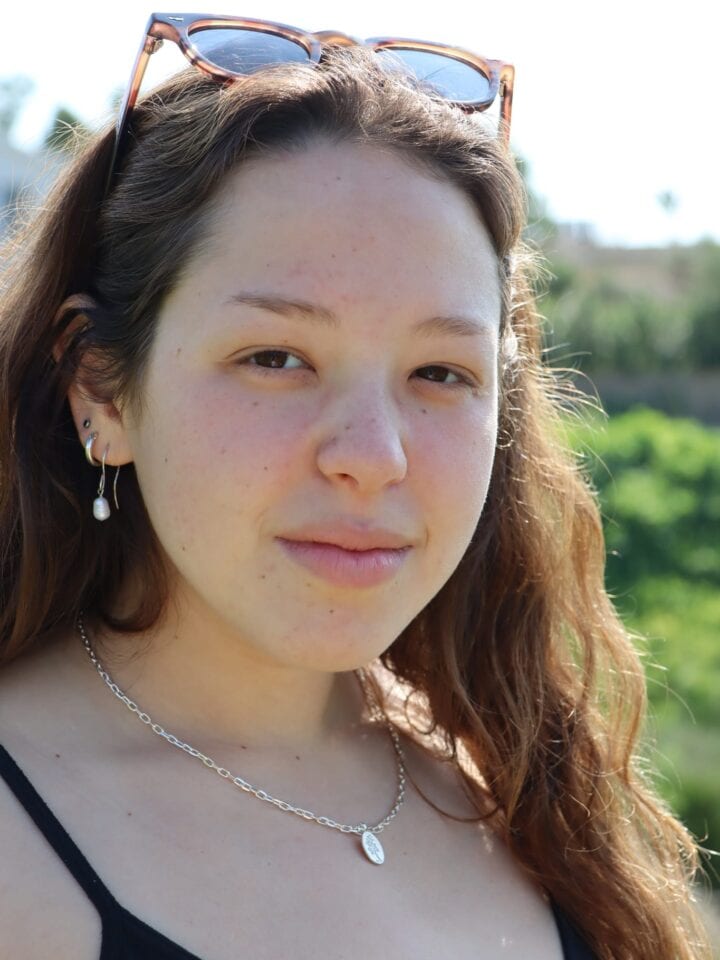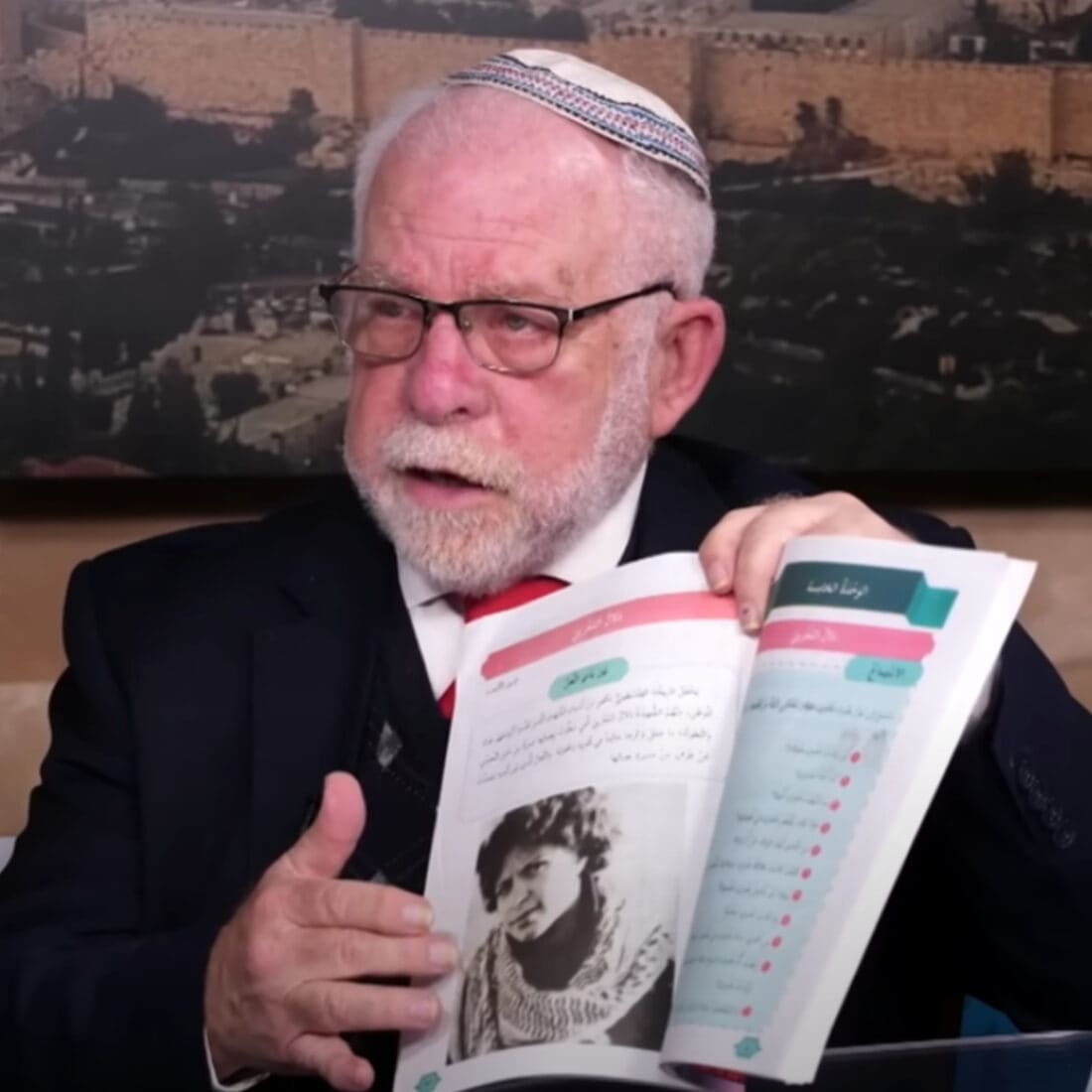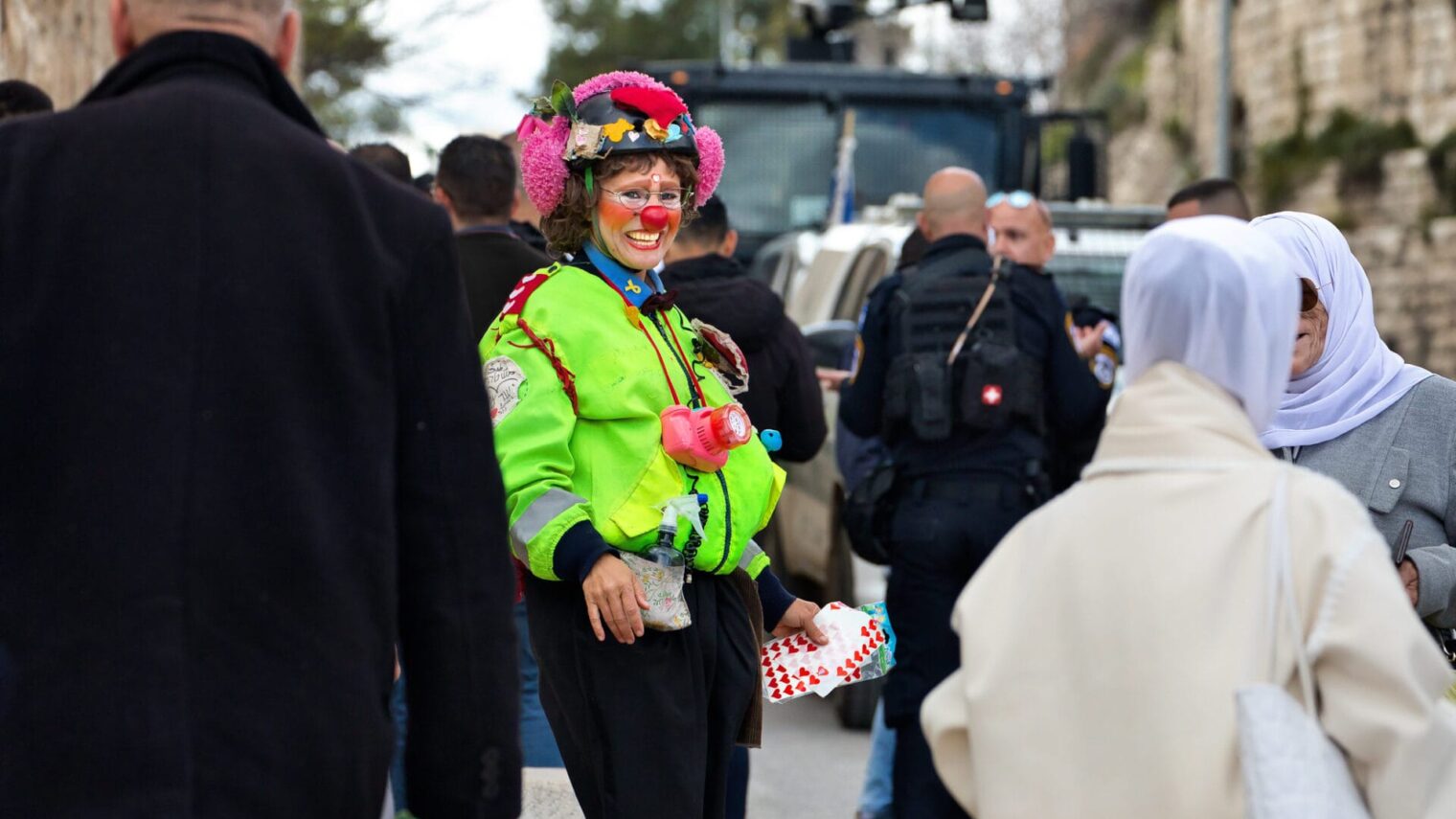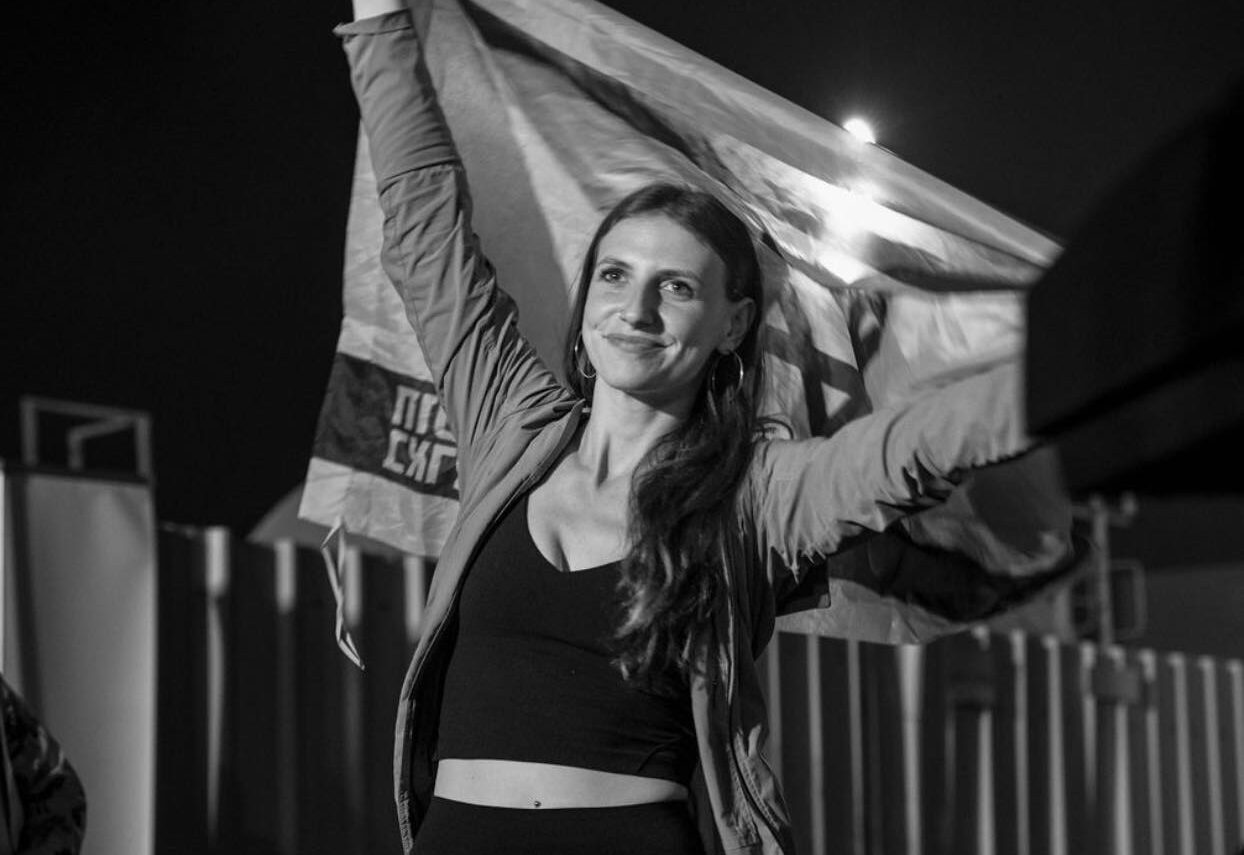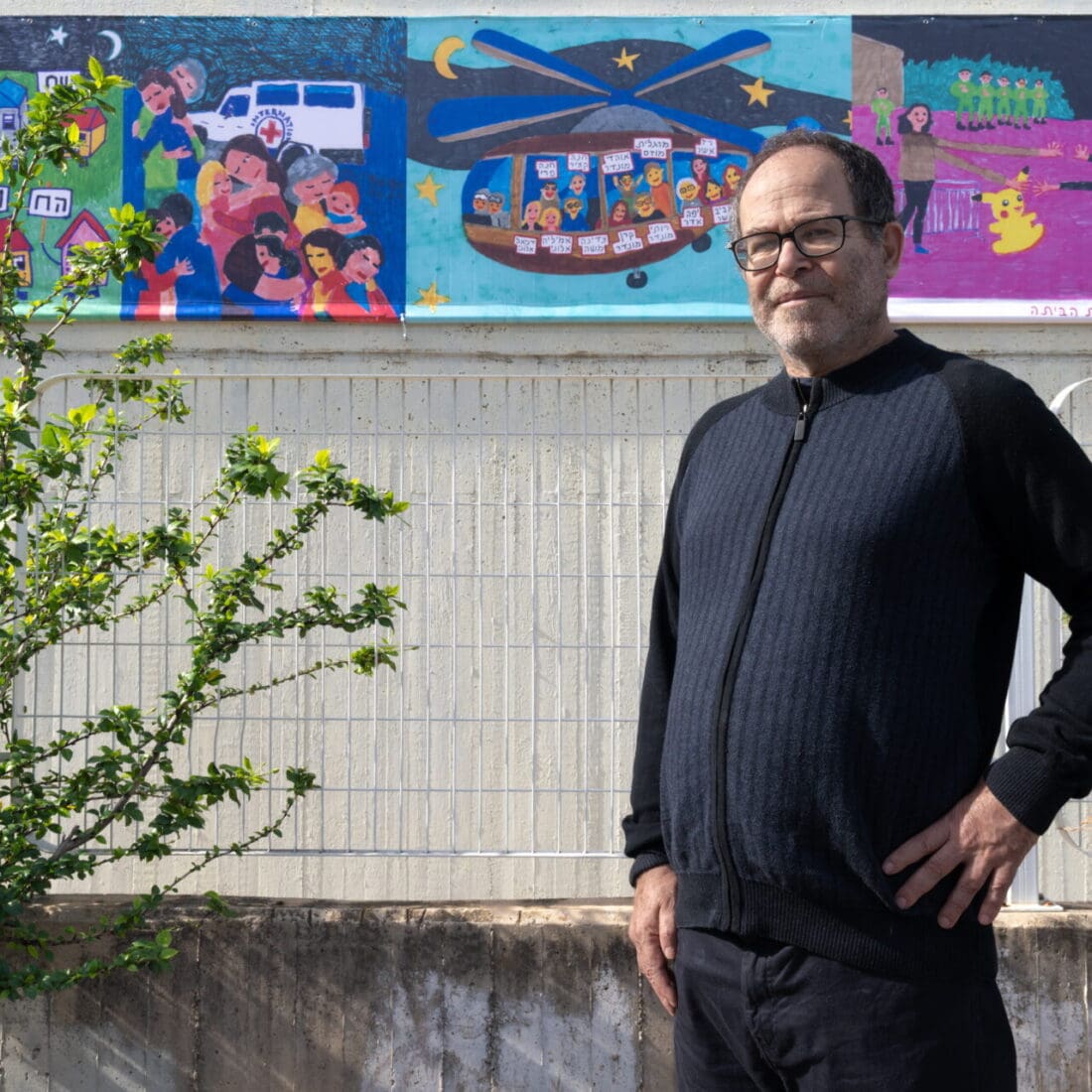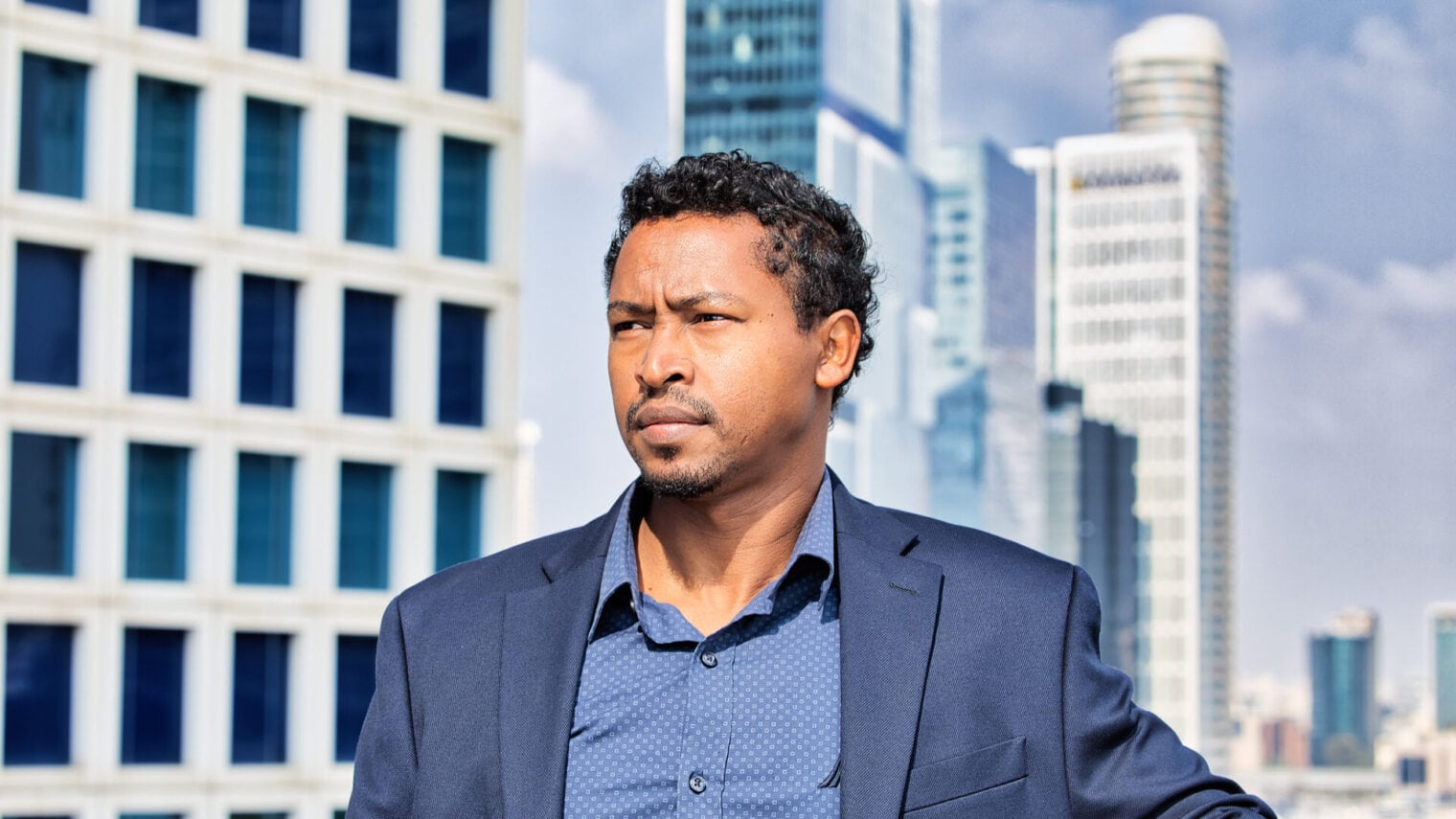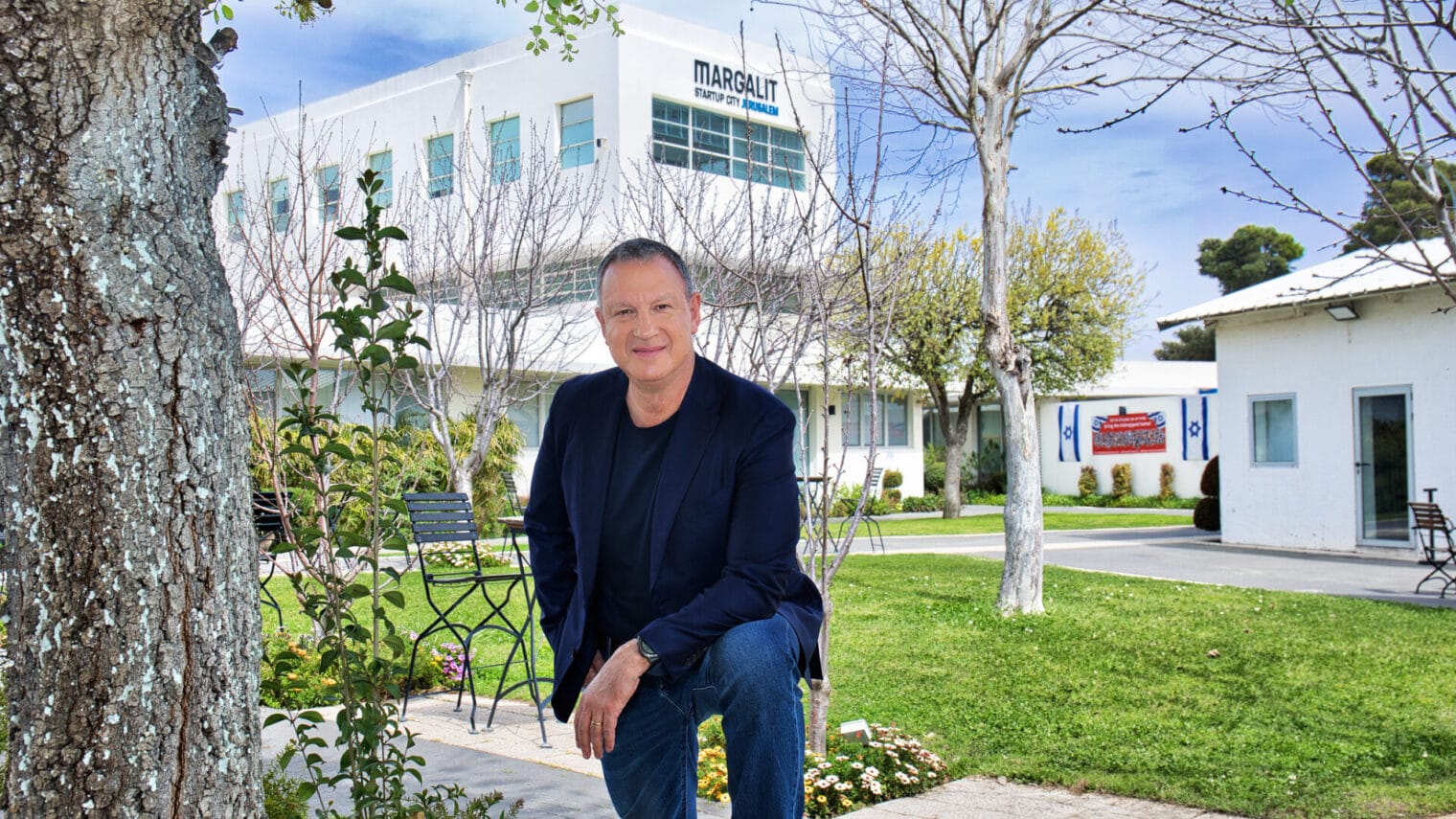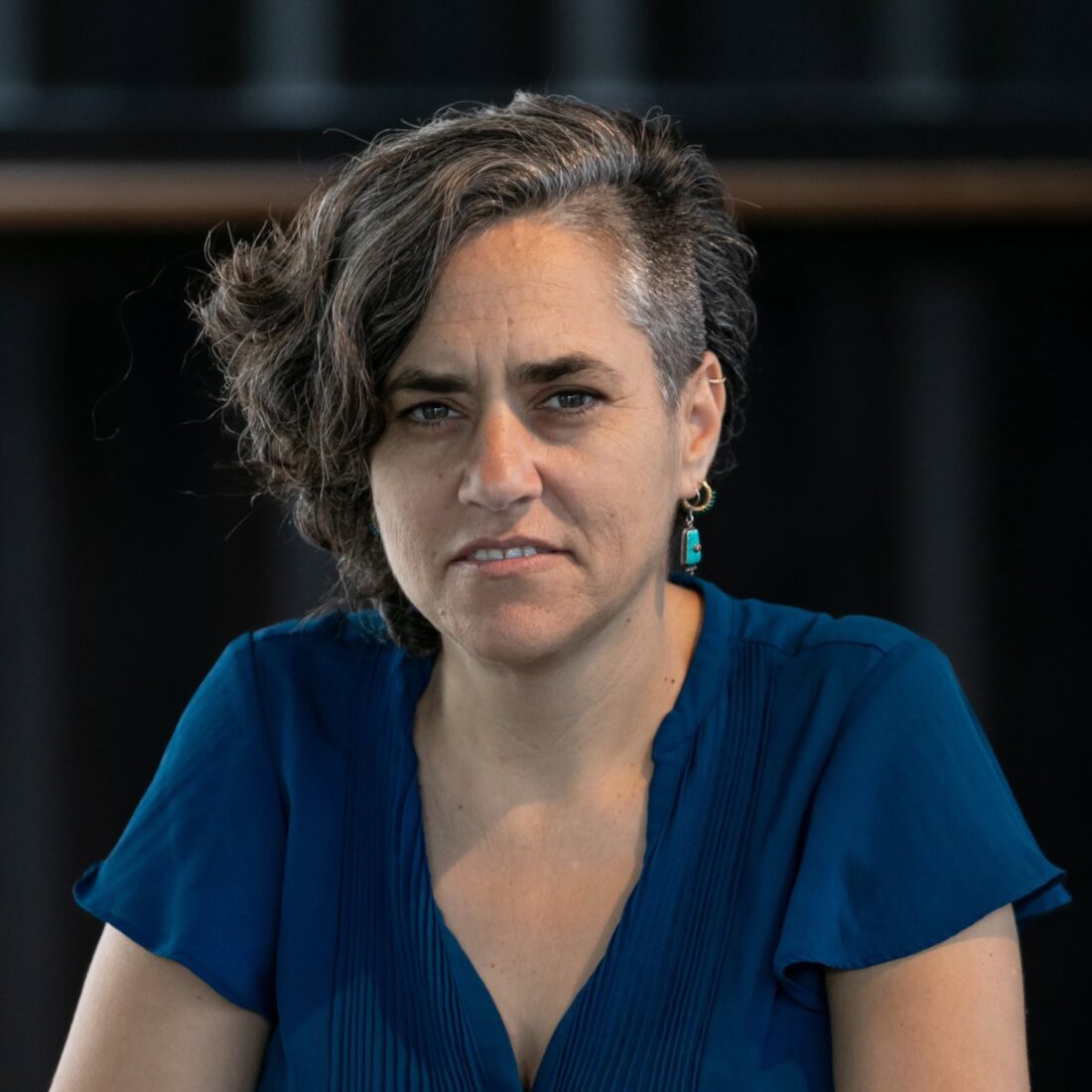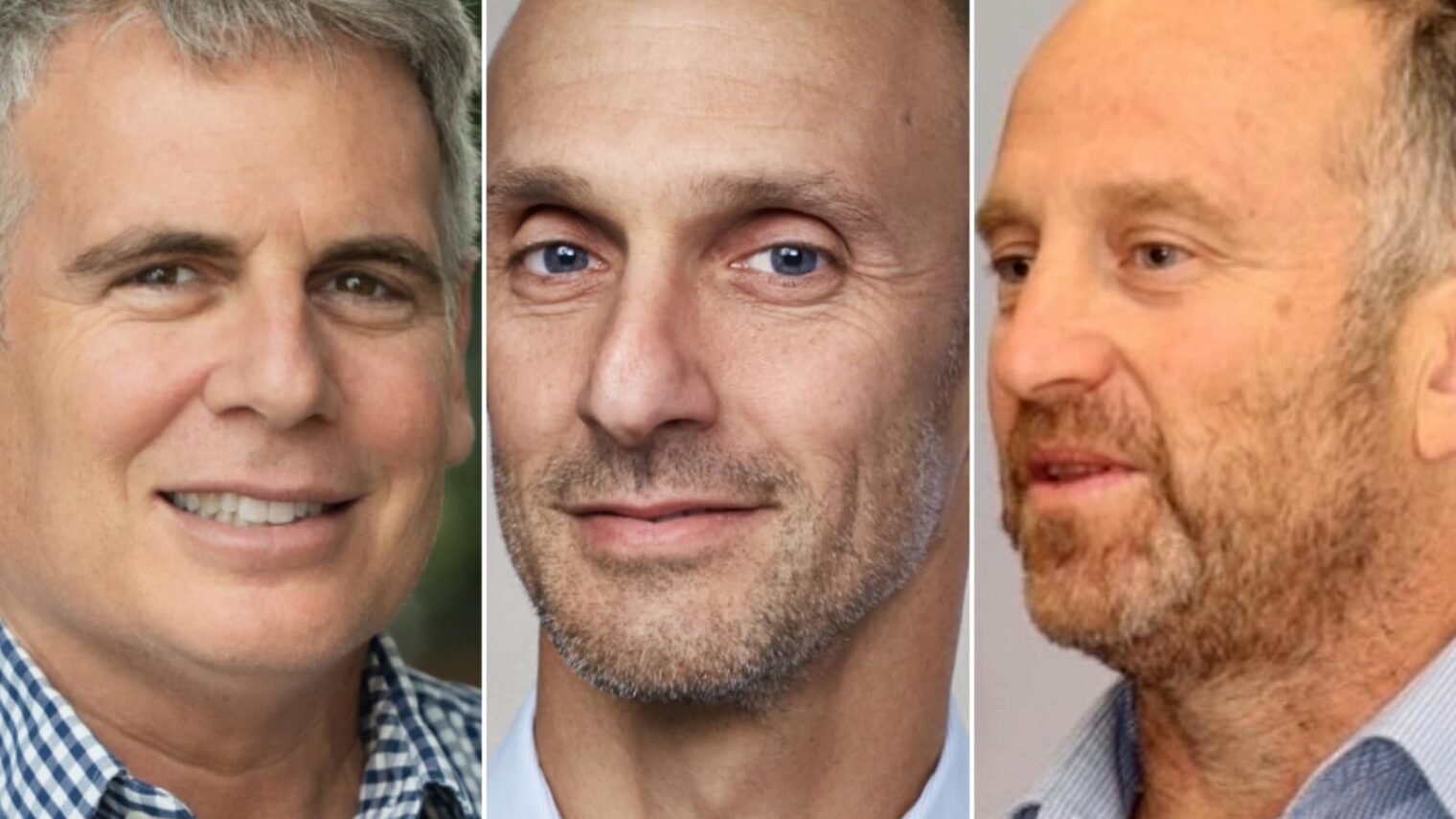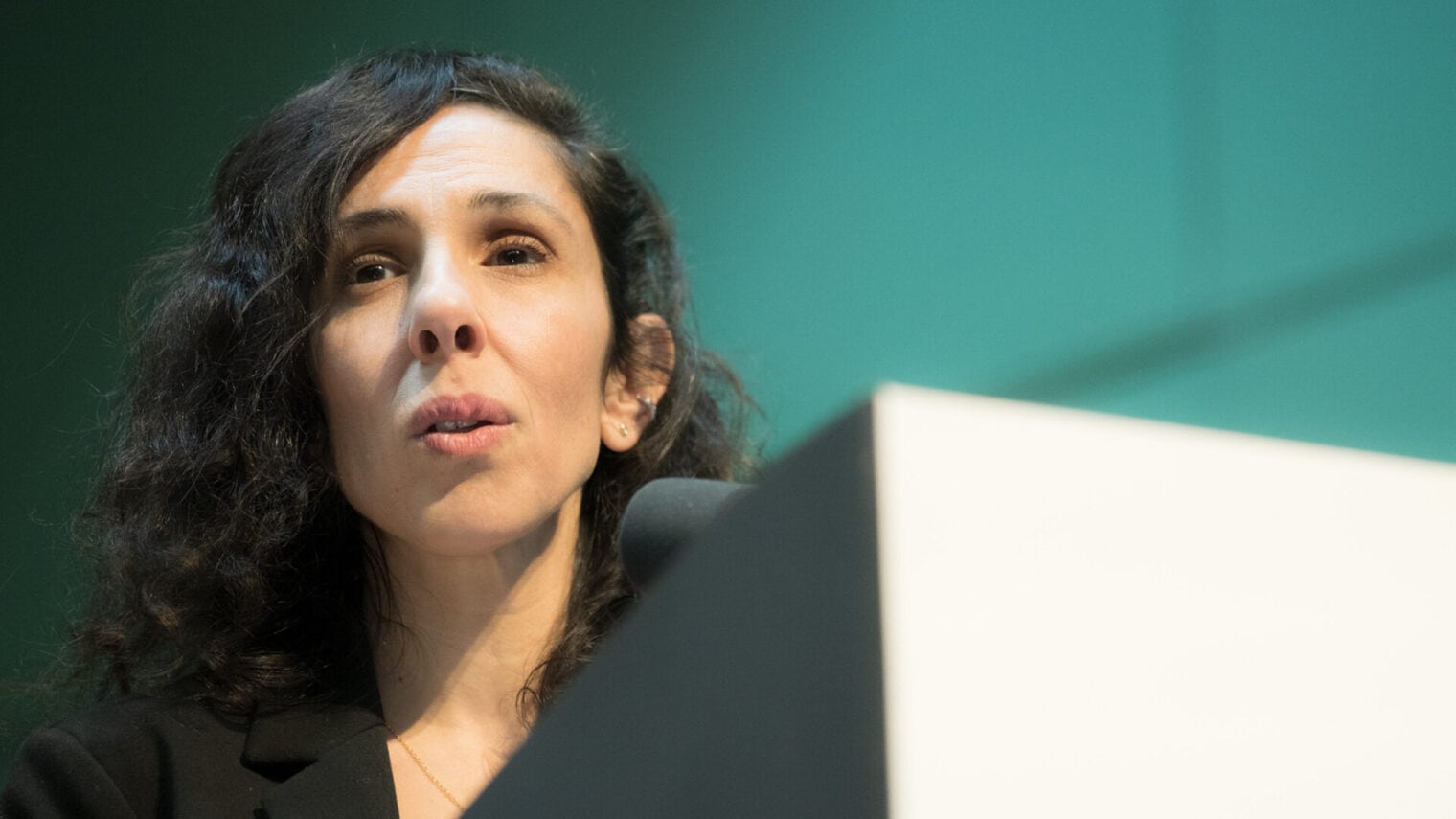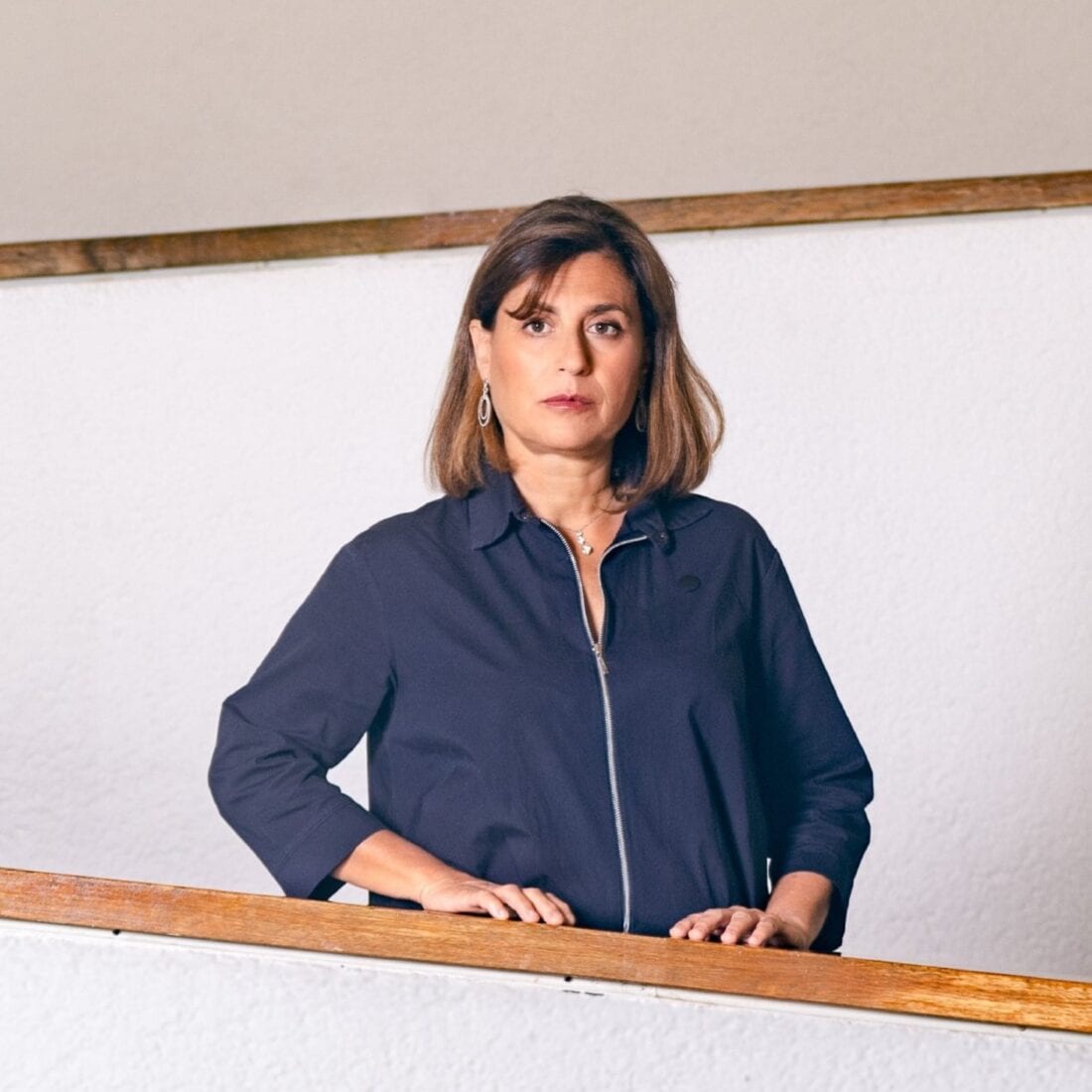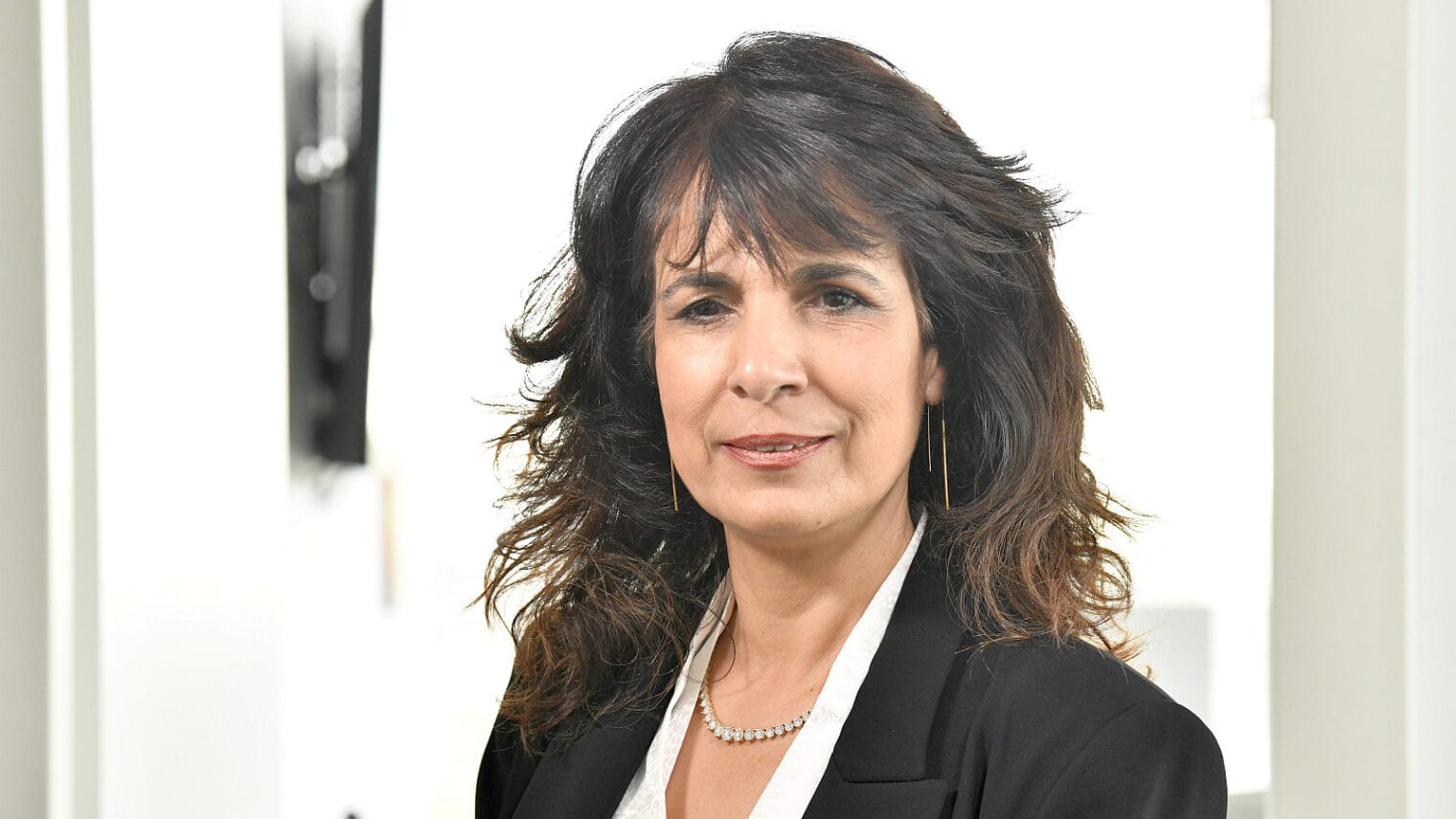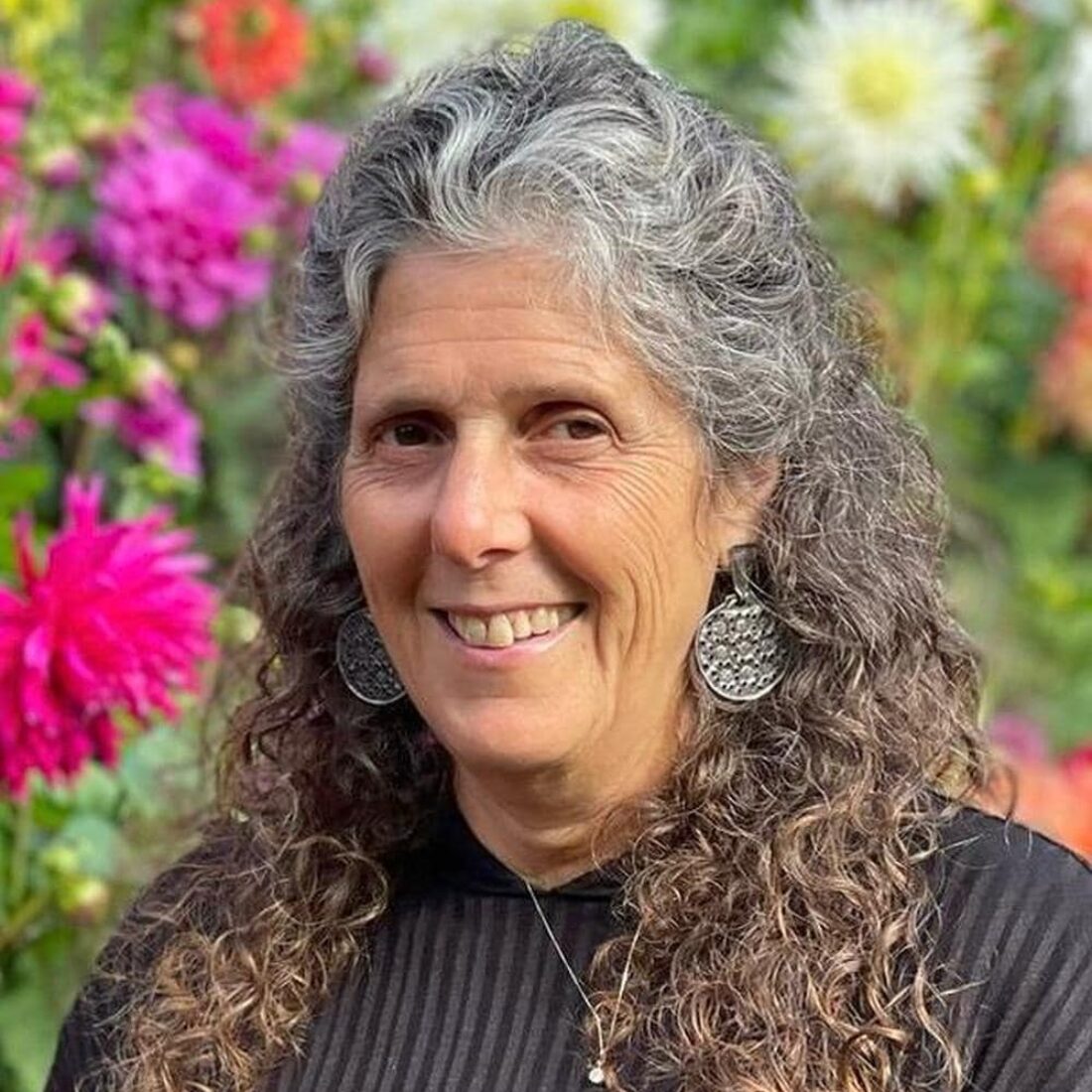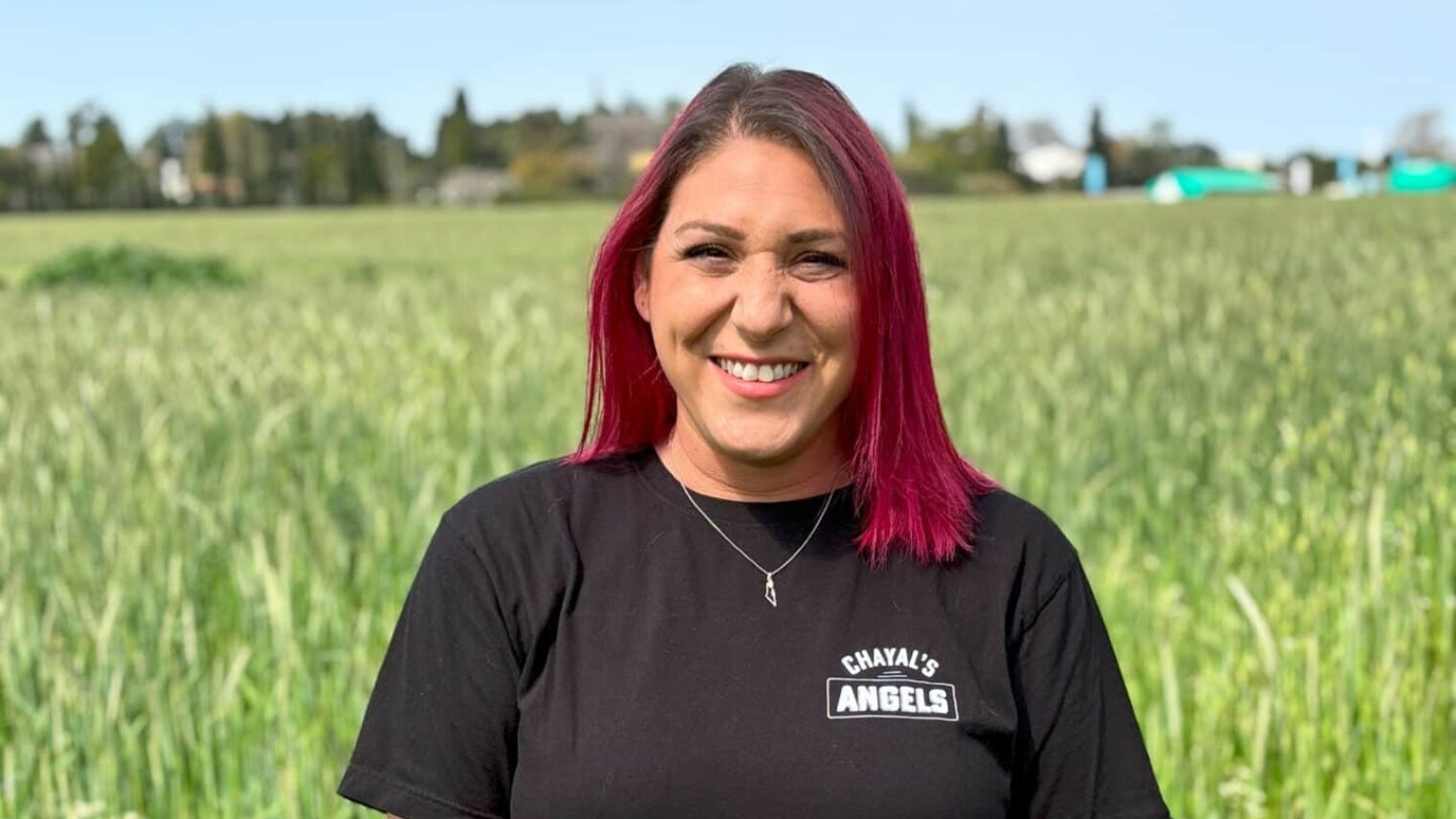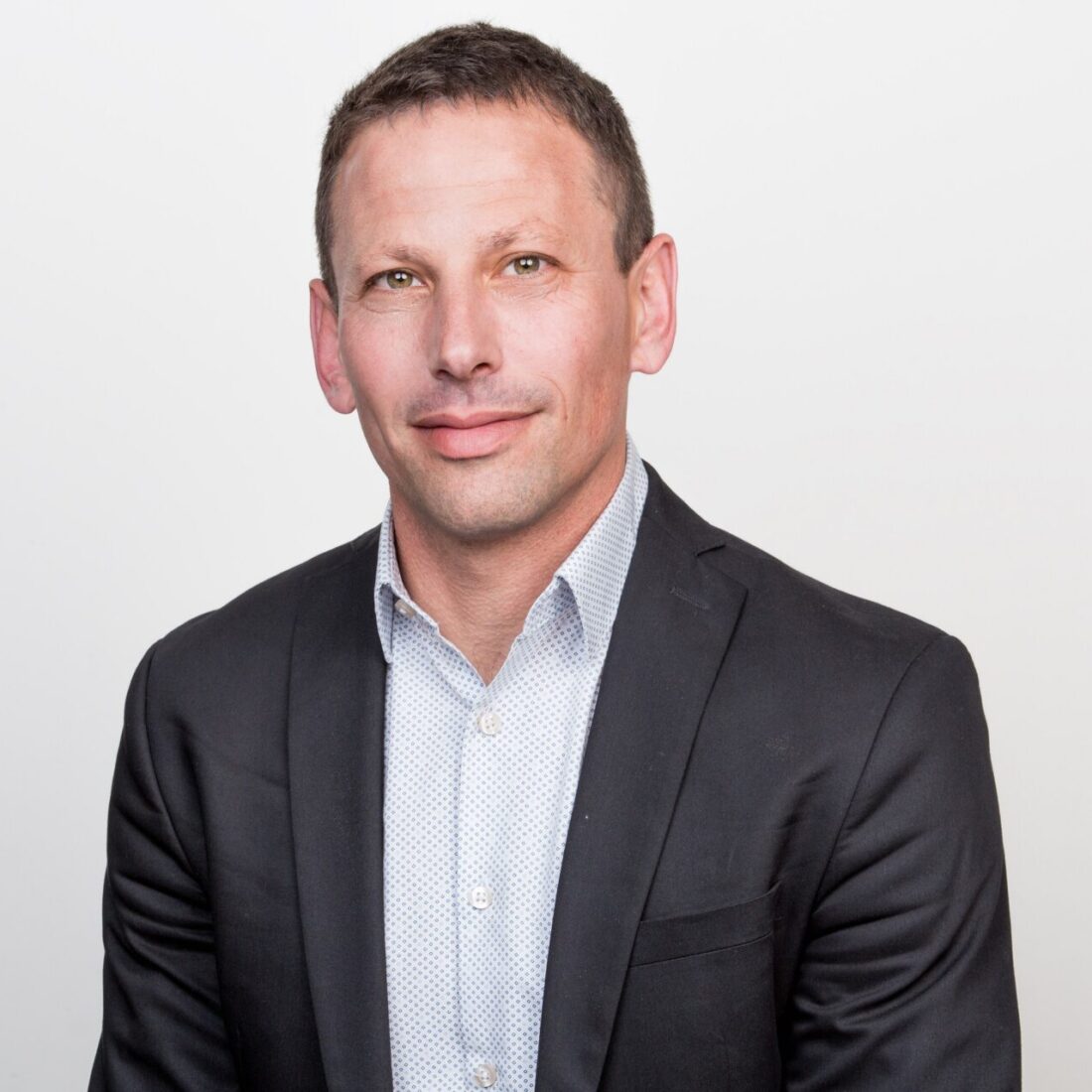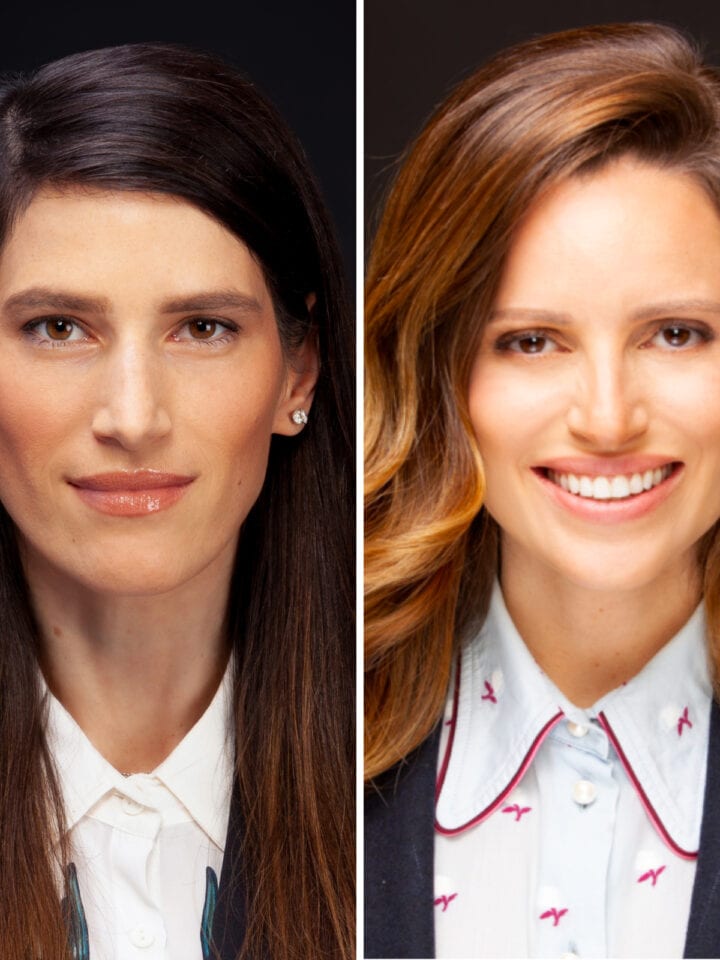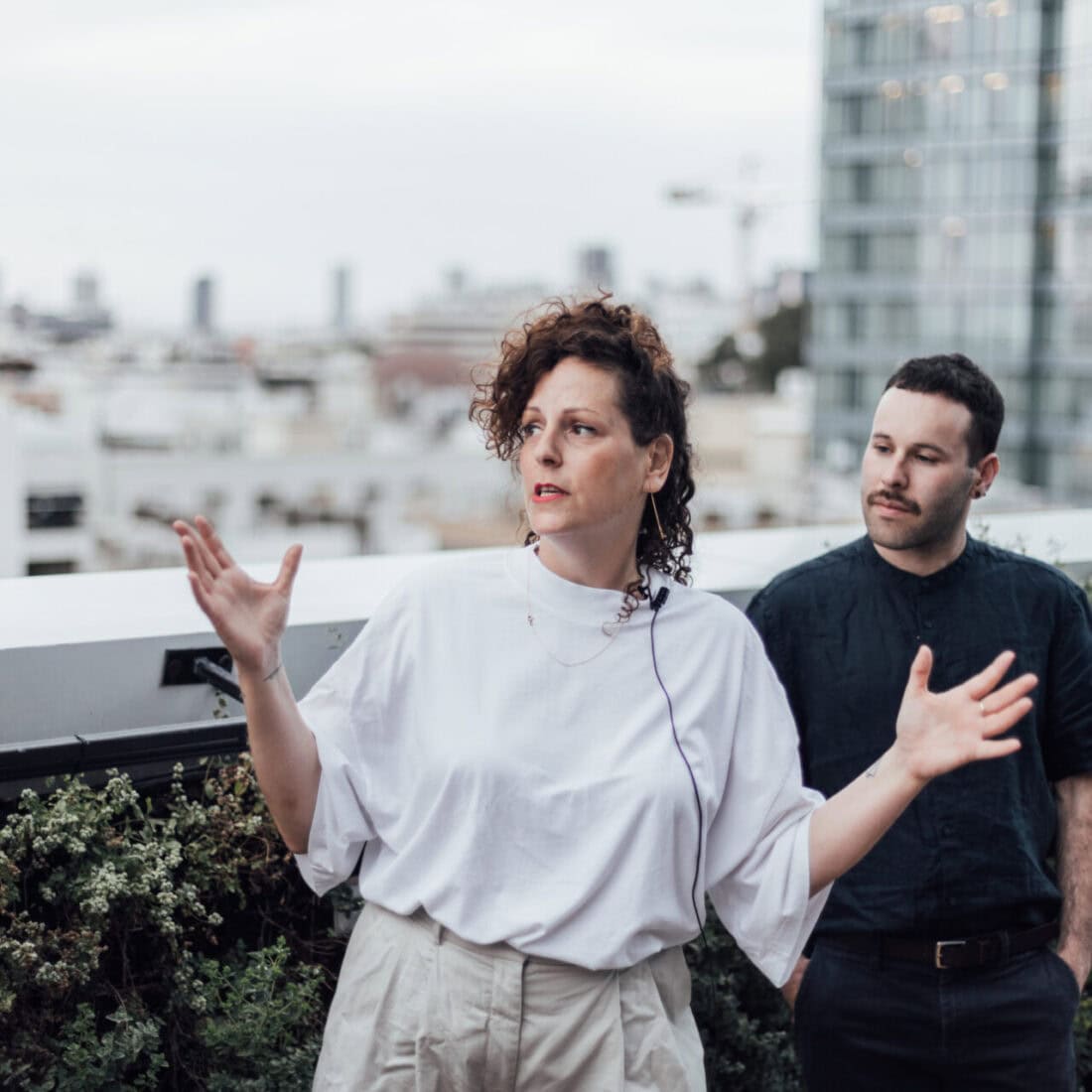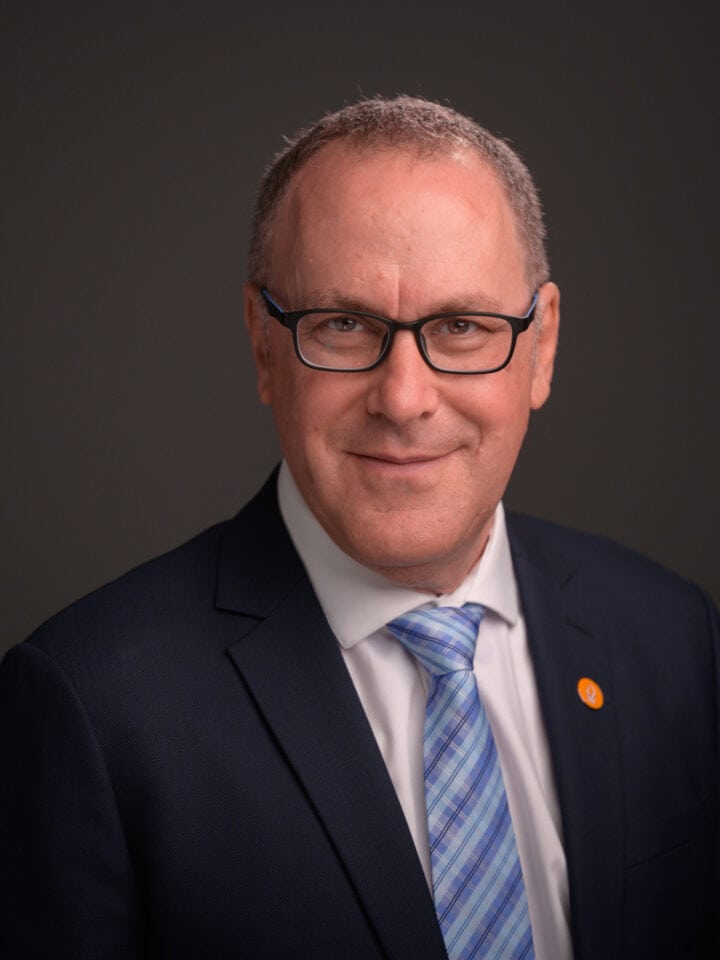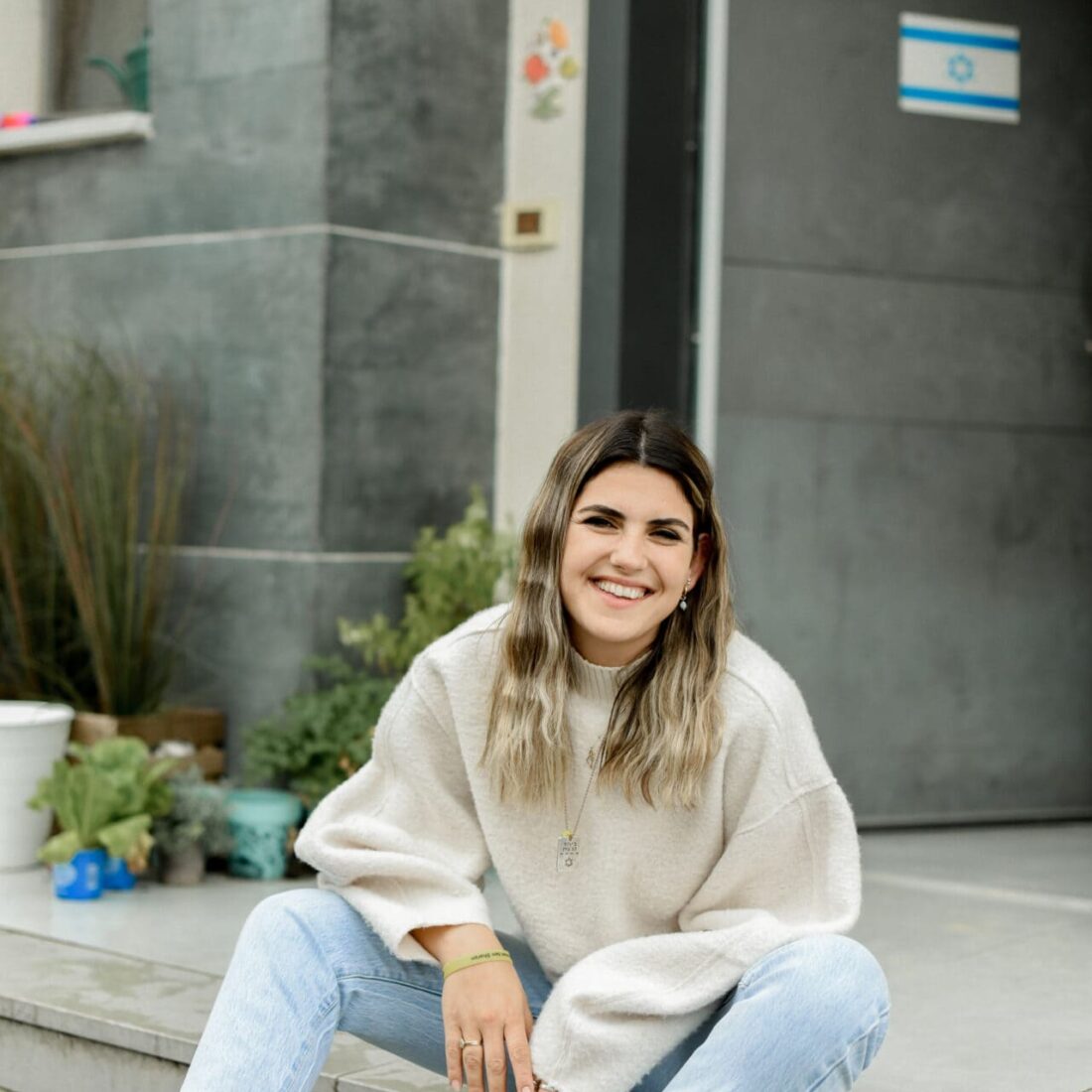Attorney Hanan Alsanah, the director of the Center for Bedouin Women’s Rights at Itach-Ma’aki: Women Lawyers for Social Justice, was up early on October 7th, preparing for a family picnic on her one day off from work.
Then she started getting a slew of messages from local WhatsApp leadership groups not normally active on Saturdays.
“At first I said, okay, it’s something small, the state is here and will do its work and will stop it,” she said.
“But after one hour we realized the immensity of the attack and that the state was not there. I felt unsafe. It was the first time I felt something was impossible, that I wanted to give up and run away from this area,” admitted Alsana.
Her first instinct was to look for tickets to fly to London with her children for a month until the situation got under control. But then she began getting forwarded messages from both Jews and Bedouins who had survived the attack asking for help because the army was not there.
Women from unrecognized Bedouin villages were seeking protection in bomb shelters and for coverage by the Iron Dome anti-missile defense system.
“So I forgot about the tickets and started work contacting people I know from the field who could help,” she said.
One of the pleas was for people who knew the desert well and could go looking for anyone who had escaped from the massacre at the Supernova music festival near Kibbutz Re’im.
“I forwarded the messages to groups I knew were the right address for that, with people who know how to enter the desert and know the area very well. Most of those people were Bedouin,” she said.
“I was busy doing something, coordinating transportation for people who were injured or who were escaping.”
On the second day, she organized deliveries of food and medicine to the most vulnerable in surrounding Jewish and Bedouin communities. On the third day, she and her Jewish friend and colleague, Shir Nosatzki from Have You Seen the Horizon Lately? created an emergency situation room in the Bedouin city of Rahat.
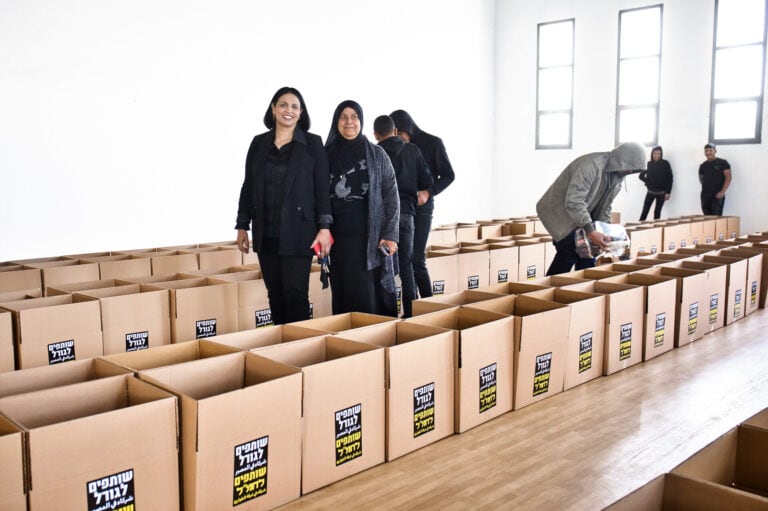
When Nosatzki heard that six Bedouin had been killed by rockets in unrecognized villages without protection, said Alsanah, she understood that these families needed to be helped along with the families from the Gaza border communities that had been evacuated.
“Immediately we started to work together as we both have a big network of activists in the field, of NGOs and public representatives,” she said.
Six months on, the emergency situation room continues to function for two of the neediest populations: single-mother families in 16 unrecognized Bedouin villages where they provide basic supplies as well as emotional and legal support through the Center for Bedouin Women’s Rights; and families in the Jewish communities of Yeruham and Dimona.
Currently 37 female Bedouin women volunteers work alongside female Jewish volunteers helping some 1,000 needy families.
“Women leaders established the emergency situation room and women continue to lead the local movement for supporting families, but we have a lot of men volunteers now too,” Alsanah said.
“If I want to be a strong woman, I need to make sure there are lot of strong women around me.”
Alsanah has always been a woman who moves against the tide.
As a child, she helped her father shepherd his 100-strong herd of sheep in Lod, where he had moved his family in the 1960s from the Negev along with two of his brothers in an attempt to maintain their traditional way of life.
One of 11 siblings—and the youngest of nine sisters—already at nine-years-old Alsanah was accompanying her father to Tuesday markets to sell sheep and helping him in the special tent where he welcomed visitors and guests, and, as sheikh of the community, helped mediate conflicts and disputes.
“Usually the boys help the sheikh, the father, in the tent. But because we were in a different situation, and most of our family was not close to Lod, my father asked me to help,” she said.
“I was exposed to a lot of the men’s worlds girls are not usually allowed to attend.”
The independence, determination, traditions and resilience she learned in those early years helped her struggle for women’s rights in her traditional community while maintaining respect for her roots, said Alsanah.
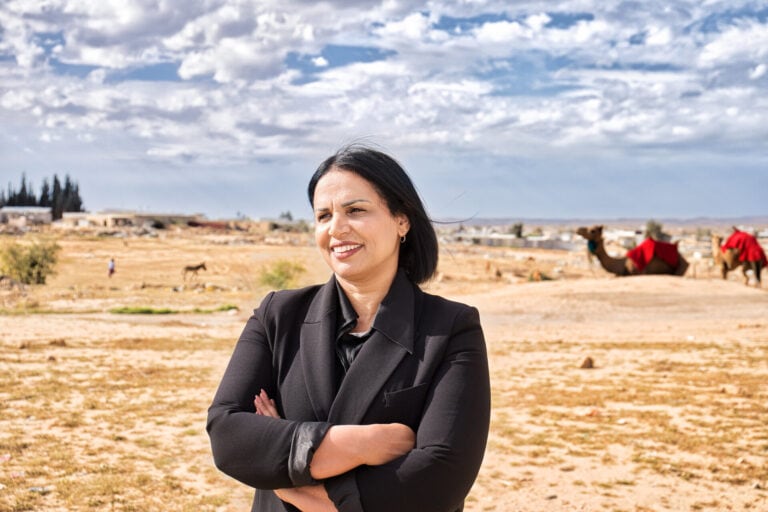
Earning a law degree at Ben-Gurion University in Beersheva was not an easy feat for a woman from a very traditional Bedouin family which does not accept women getting academic education and being exposed to other cultures, “but I wanted to be active and not be dependent on my father and my family,” she explained.
The only one of her sisters to get an academic education, Alsanah said she has now set her sights on becoming a judge. She is proud that all of her nieces have gone on to higher education. One is even a lawyer.
Alsanah wed a man from a feminist Bedouin family who has been supportive of her work, she said. They live in Beersheva and have 17-year-old twin sons and two daughters aged 10 and seven.
“I want my daughters to believe in the power of women and that women should not be victims, and to be proud of our identity as Bedouin Arabs; and I want them to believe in a shared society where we accept the other,” she said.
She and her husband encourage their sons to be advocates for women’s rights. “They are going to be men in our community and they need to have the tools to deal with these obstacles.”
Some 400,000 Bedouin live in the Negev in an area ranging from Beersheva to Arad including 300,000 in seven established towns and 100,000 in 35 unrecognized villages with no electricity, sewage or water infrastructure and no paved roads, schools or medical clinics.
Alsanah has focused her career efforts working with Bedouin women mainly in the unrecognized Bedouin villages, promoting civil equality and human rights for Arab-Bedouin communities by advocating for basic services in these villages, filing legal petitions to Israel’s Supreme Court to combat discrimination, and documenting human rights violations.
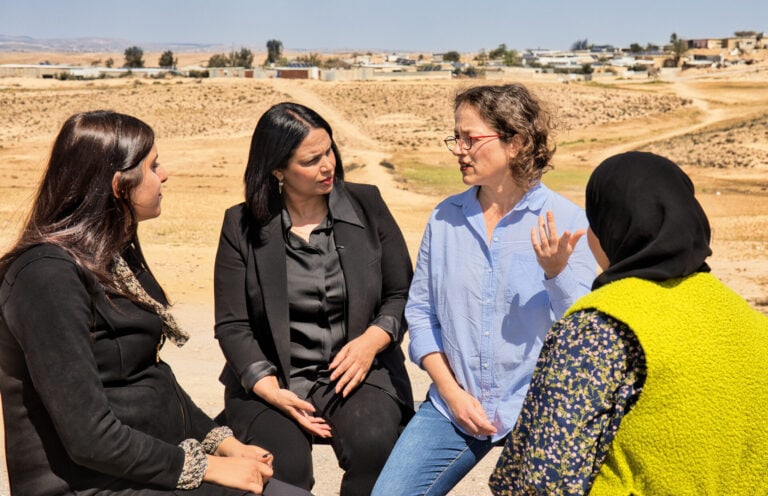
She has engaged with international forums, submitted reports to the UN, and collaborated with the government and members of Knesset.
For the past 23 years, Alsanah has taken part in the challenging process of establishing high schools in unrecognized Bedouin villages, as well as building clinics and community centers. She was involved with a wide range of Israeli NGOs — including Adalah, Bimkom, Physicians for Human Rights, The Association for Civil Rights in Israel and the Negev Coexistence Forum — in gaining the recognition of 11 unrecognized villages.
The lack of childcare in the villages also prevents young mothers from working, she said. In Bedouin towns where women have completed schooling and there are childcare frameworks, unemployment for women has gone down from 95% to 79% in the past 10 years, she said.
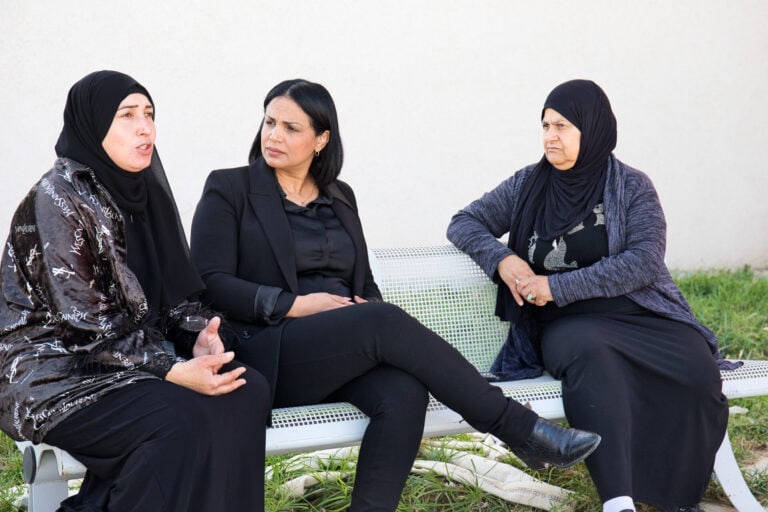
The male leaders of the unrecognized villages have not always been happy to see her bringing in new ideas for the women, she said, but as she did with her own future, she does not give up on the women of the villages.
“At first they are angry, and ask people not to work with me. But I insist on meeting them. In the beginning I was hurt when they said they don’t want to work with me because I work with women’s rights. They don’t know my name, but they know ‘women’s rights.’ This is my name,” she said.
“They try to stop me from getting into the village and talking to the women but they do not succeed. I am clever, I know how it works. Some leaders support me after giving me conditions, and at first I accept all conditions. But then they start to like me and appreciate me and in my culture when you like and appreciate someone you can’t say no. Then I started working directly with the women and in every village one or two women became leaders and they are our address now.”
“This land belongs to the good people who care about each other.”
Despite the difficulties and opposition she sometimes faces, she said, she chooses to persevere.
“If I want to be a strong woman, I need to make sure there are lot of strong women around me,” she said.
For many Bedouin today, the conflict with Gaza leaves them feeling torn between their concern for the Israeli hostages in Gaza — who include Bedouins — their Israeli friends from the Gaza border communities, and their family members in Gaza.
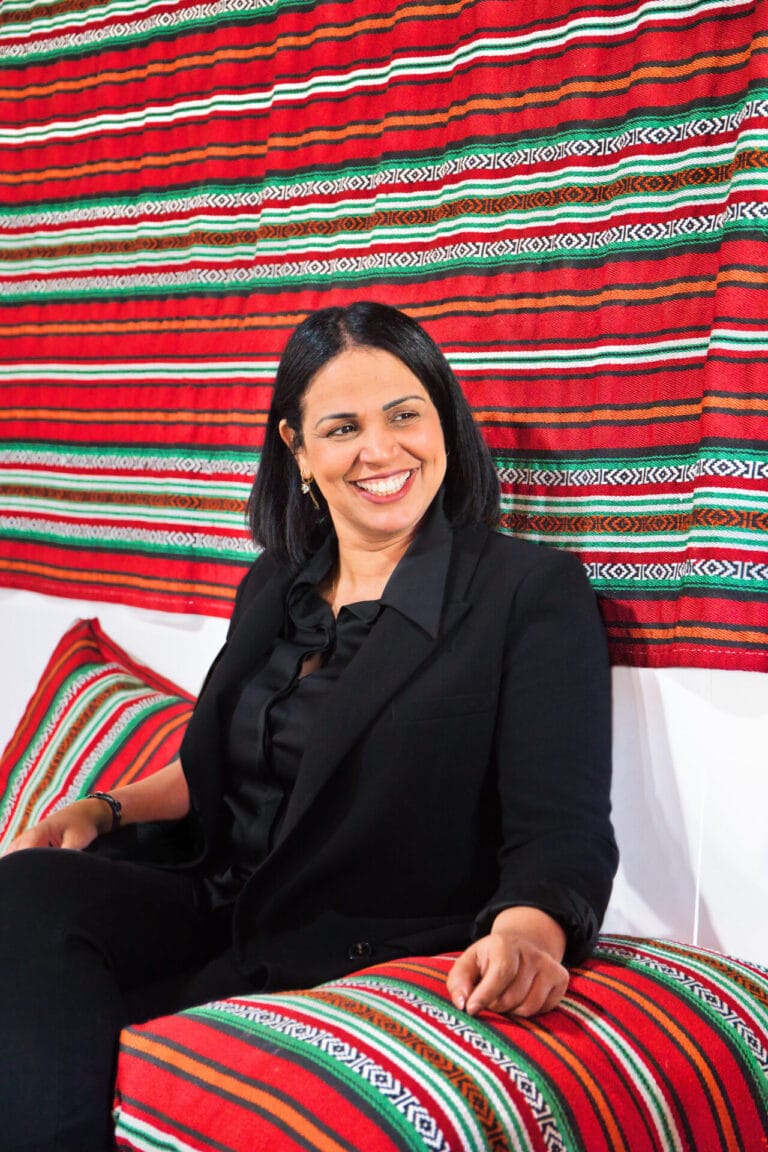
“Part of our heart belongs to the Israeli victims and families of the hostages and part of our heart is for the people in Gaza who are not just neighbors, but they are like part of our family, of our tribe,” she said. “The situation there becomes more and more difficult and we feel sadness and helpless.”
Similar to Jewish Israelis, Bedouin Israelis are experiencing an increase in depression and a sense of helplessness, she said, which is why professional emotional support is critical.
“The Bedouin community wants to be part of the solution, we want to try to find the way to a solution,” she said.
For Alsanah, the cooperation she has witnessed first hand between Bedouin and Jewish volunteers, has helped her regain a sense of hope and enabled her to see a point of light in the darkness.
“Today our mission is to make sure this point gets bigger and bigger in our work together and that we don’t let the extremists from both sides win,” she said. “This land belongs to the good people who care about each other.”





